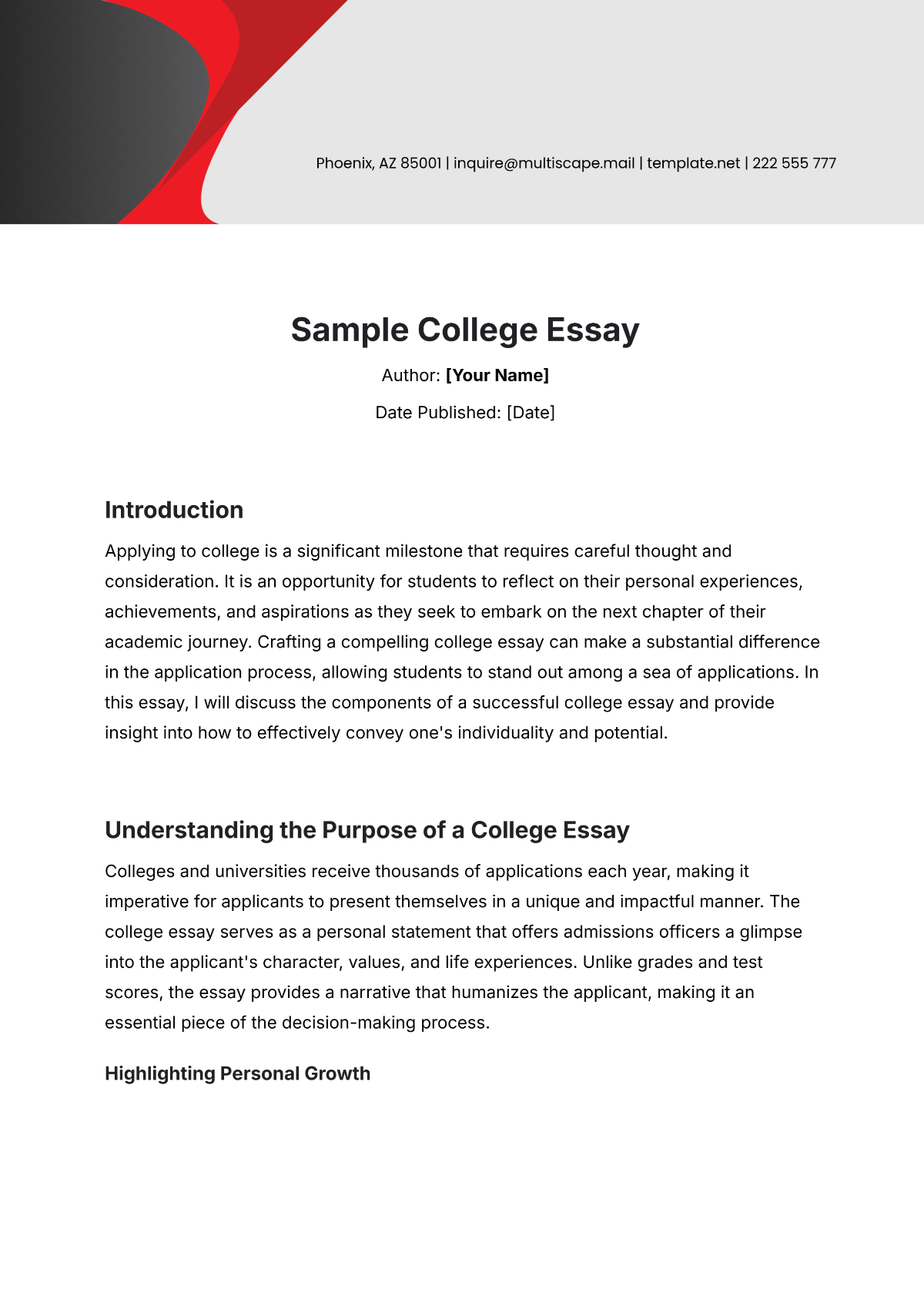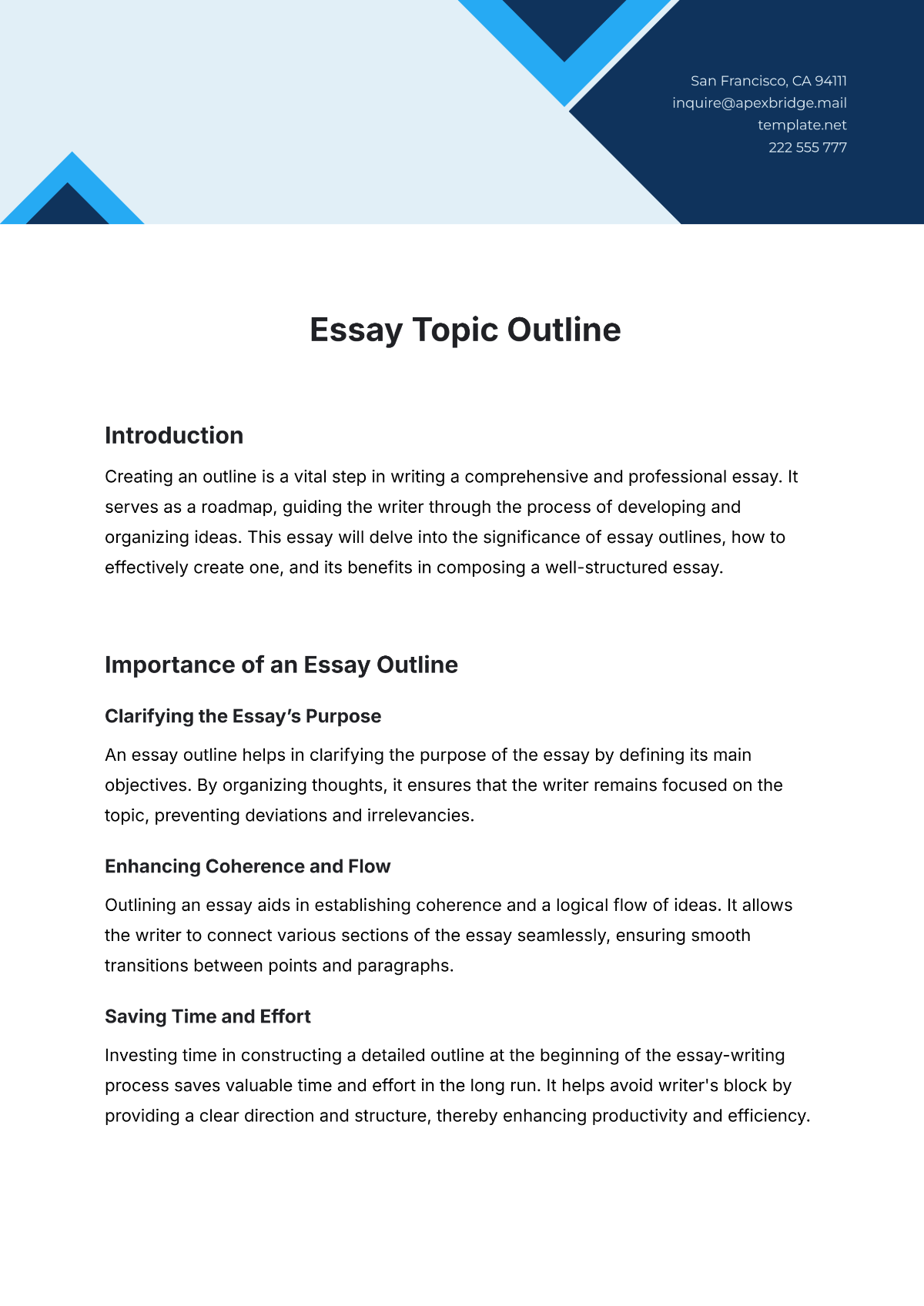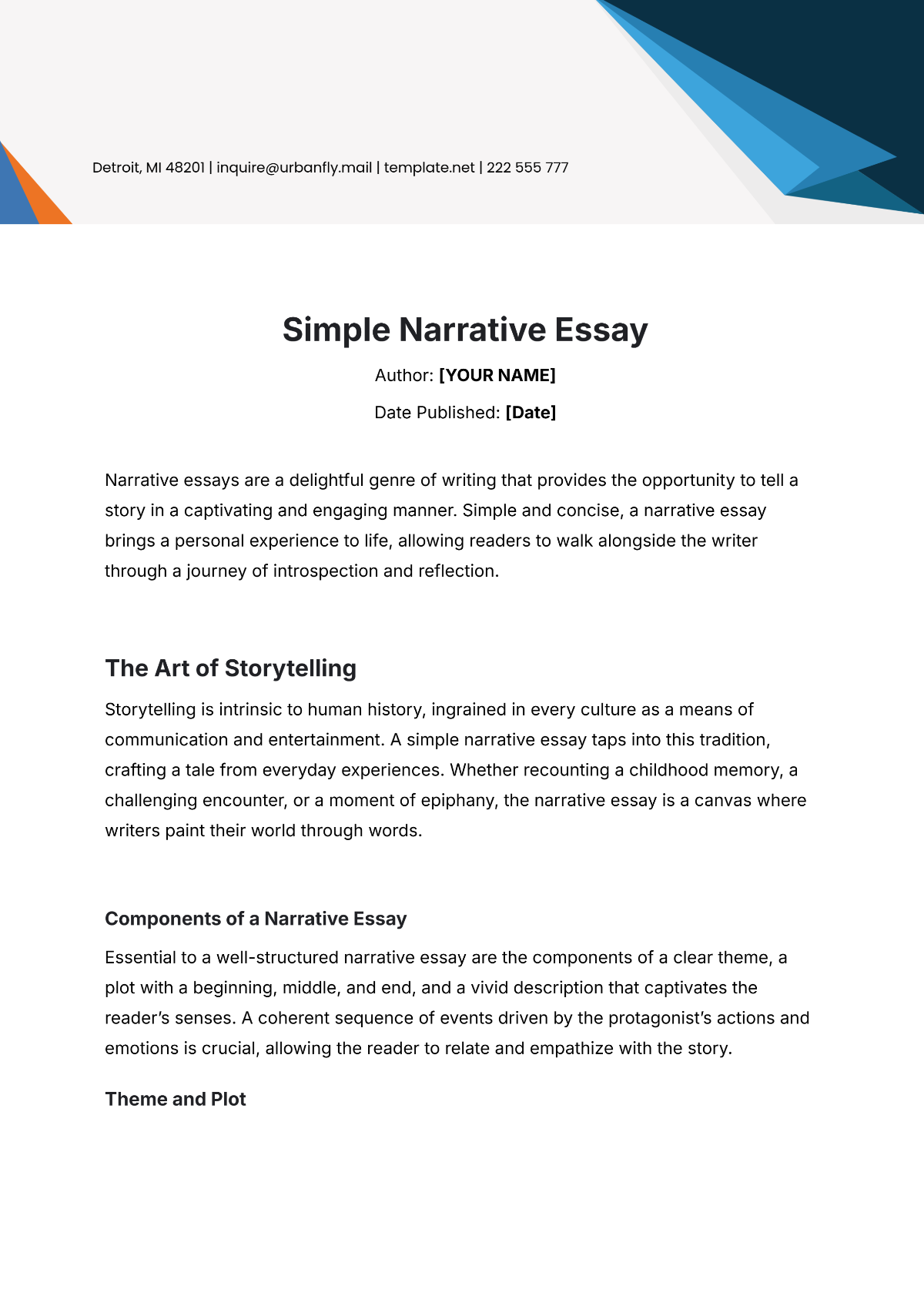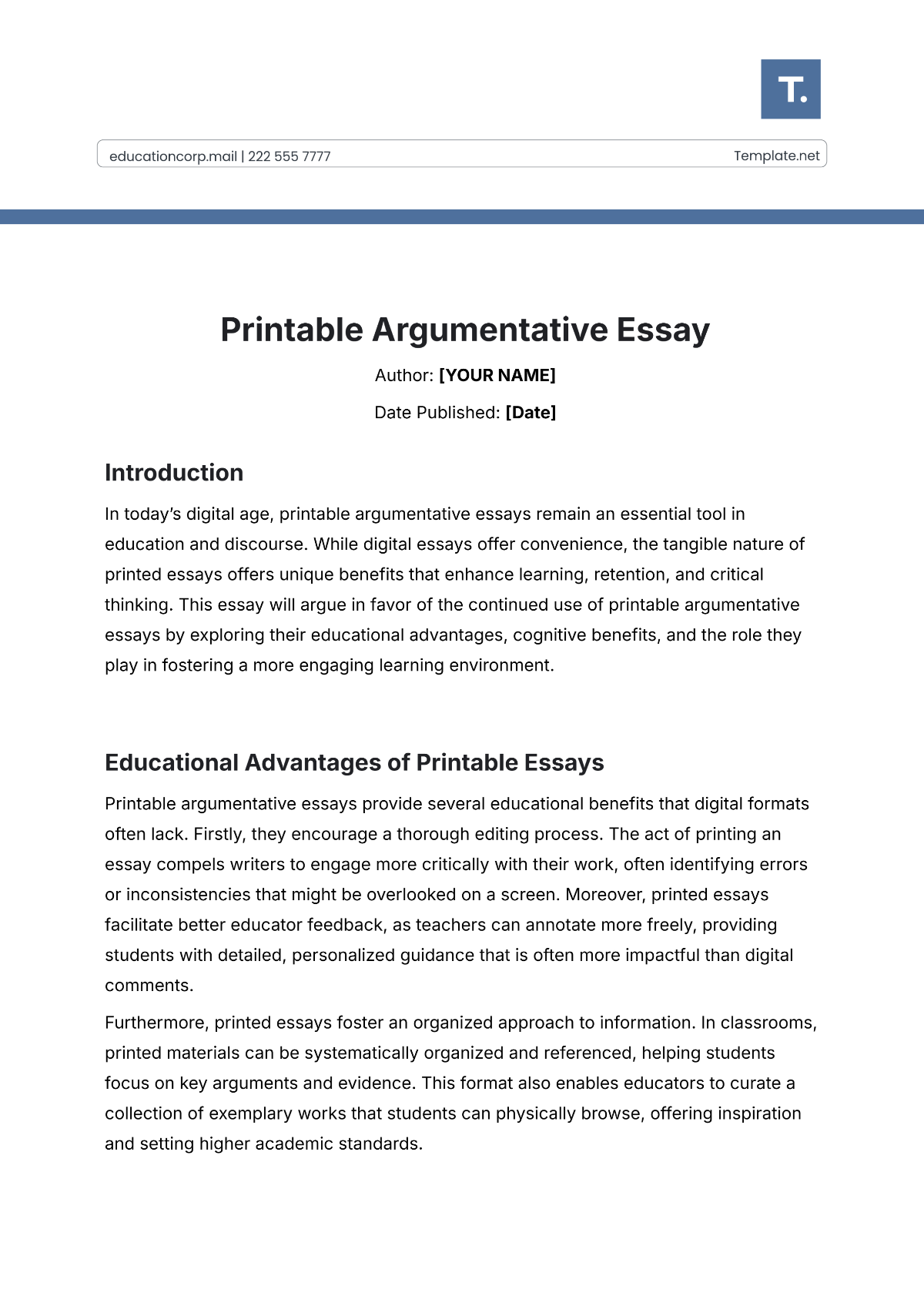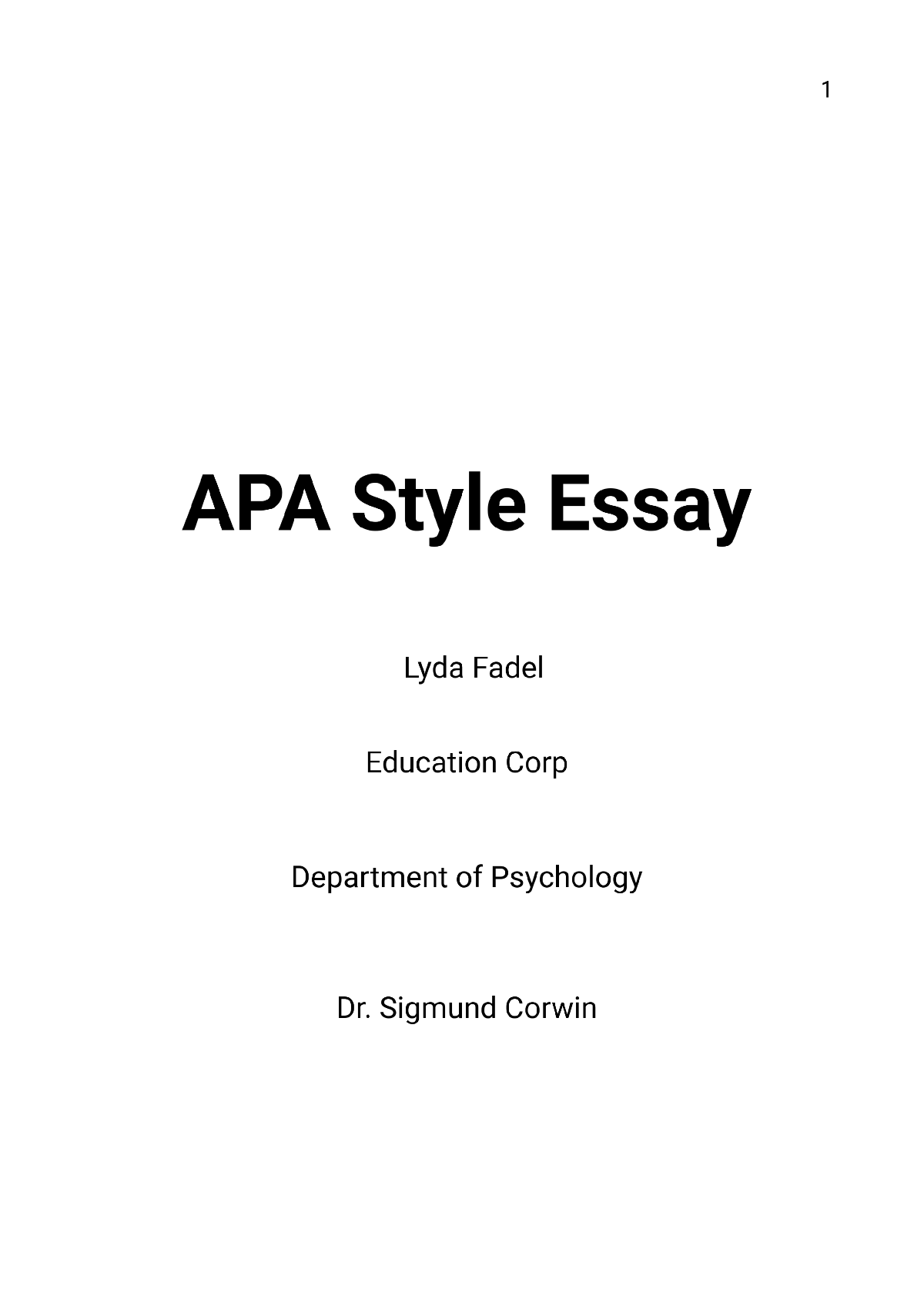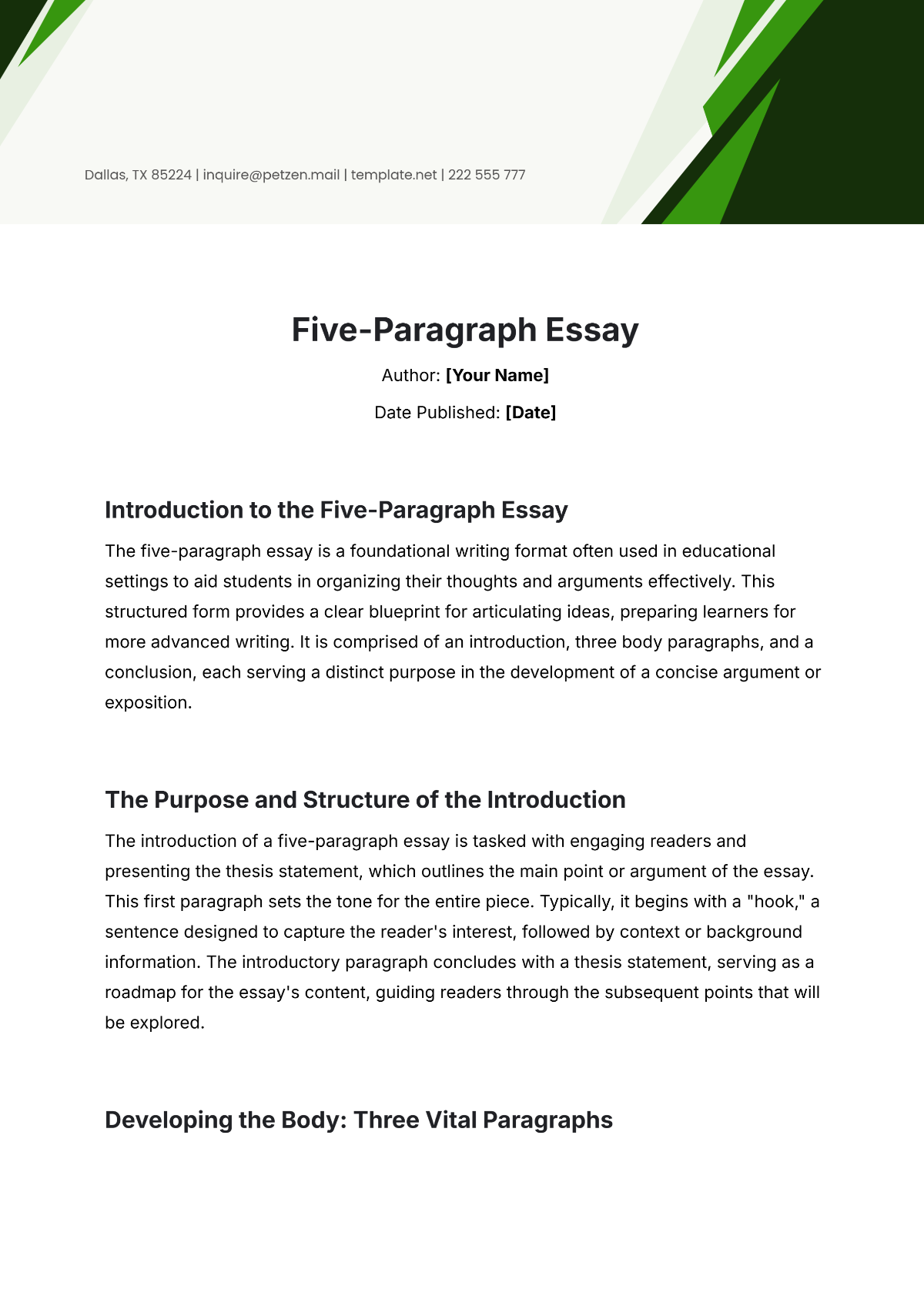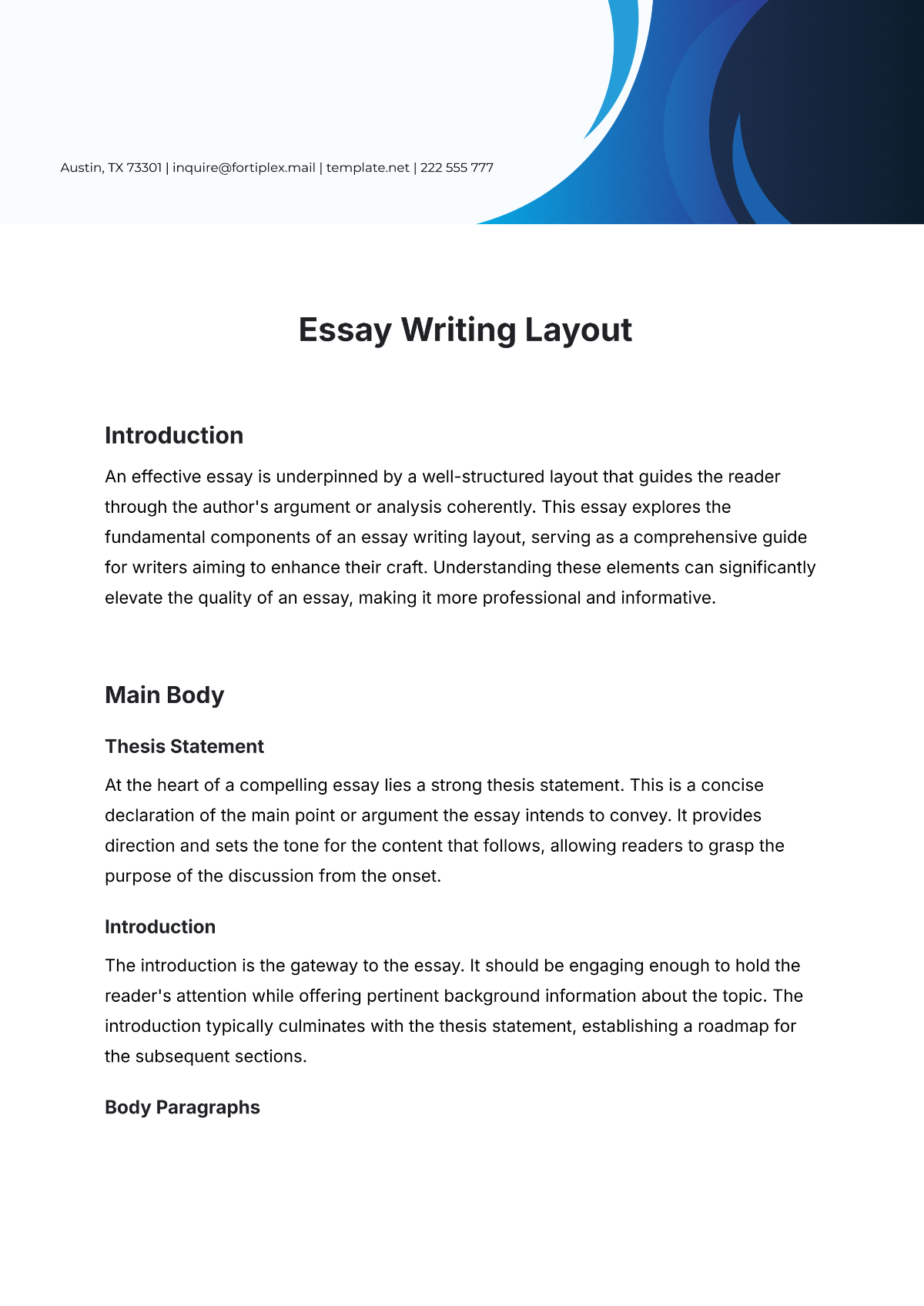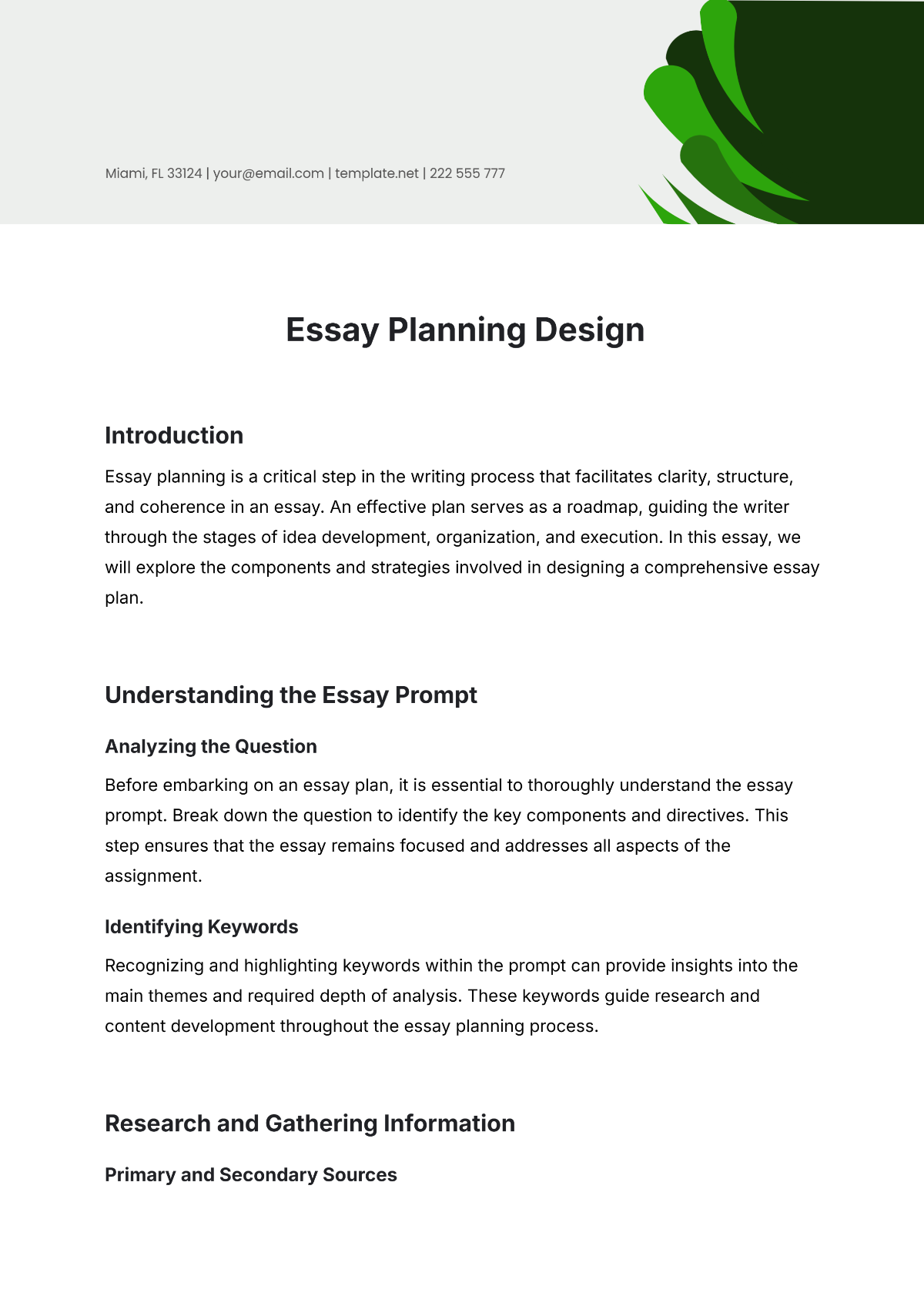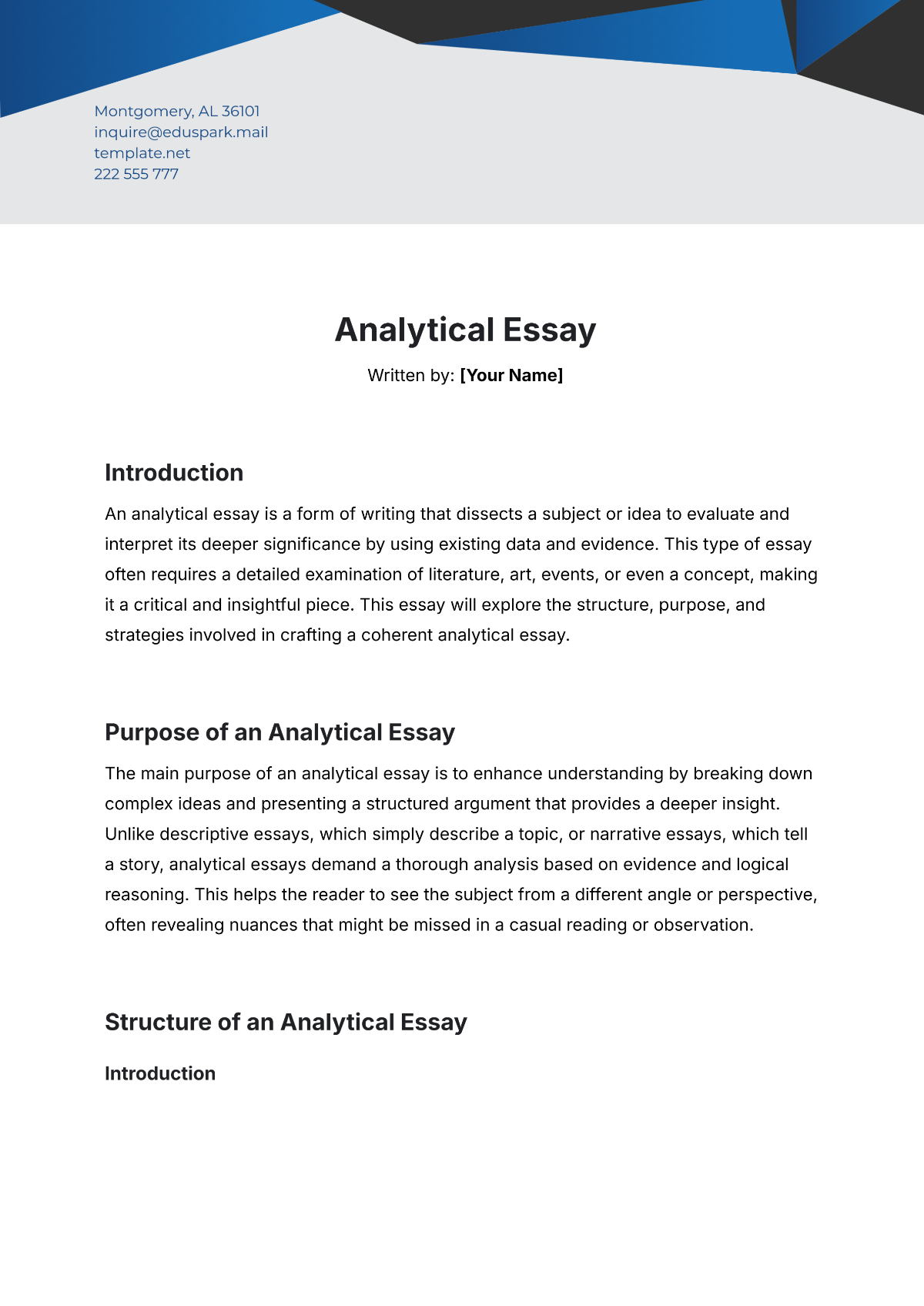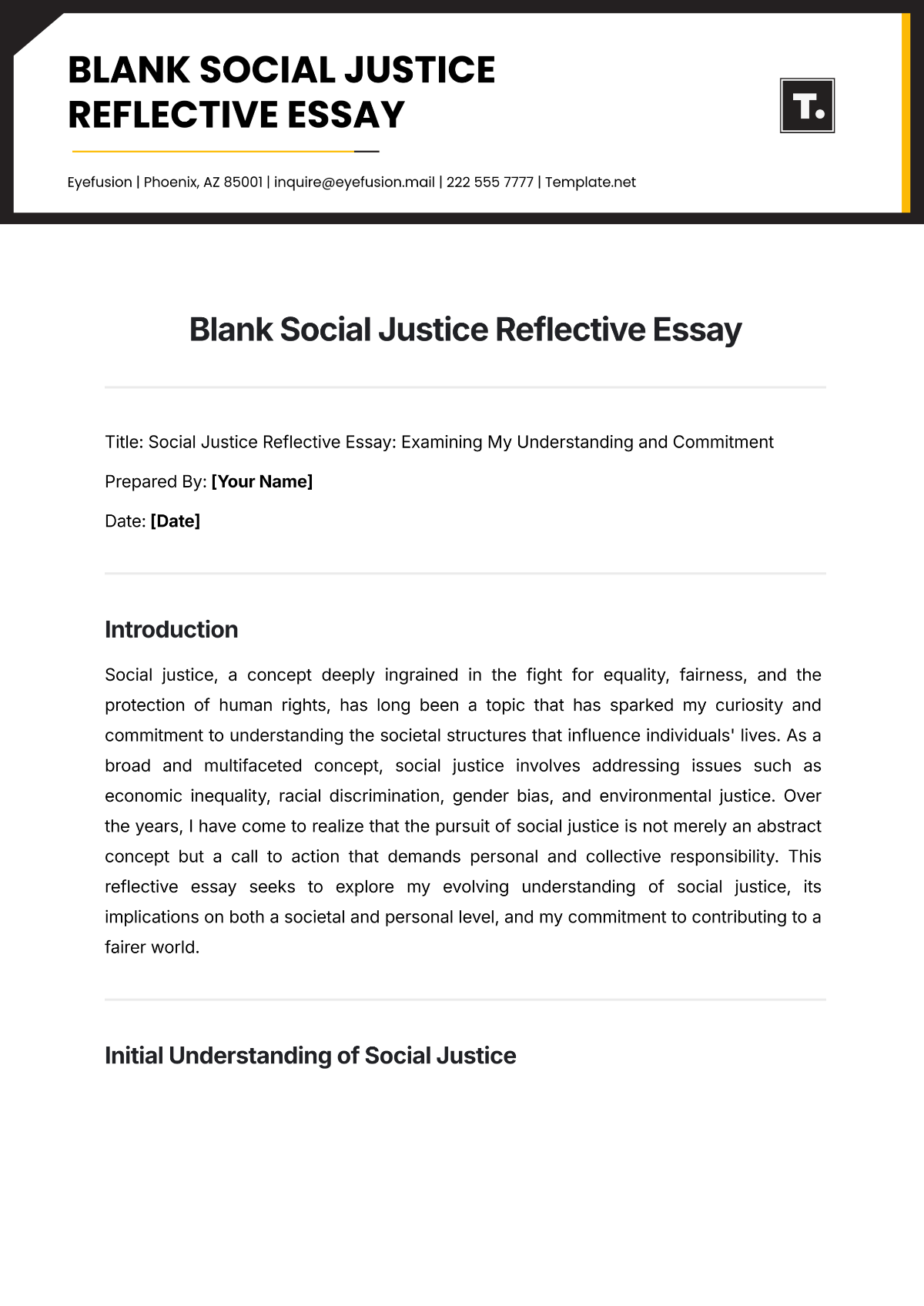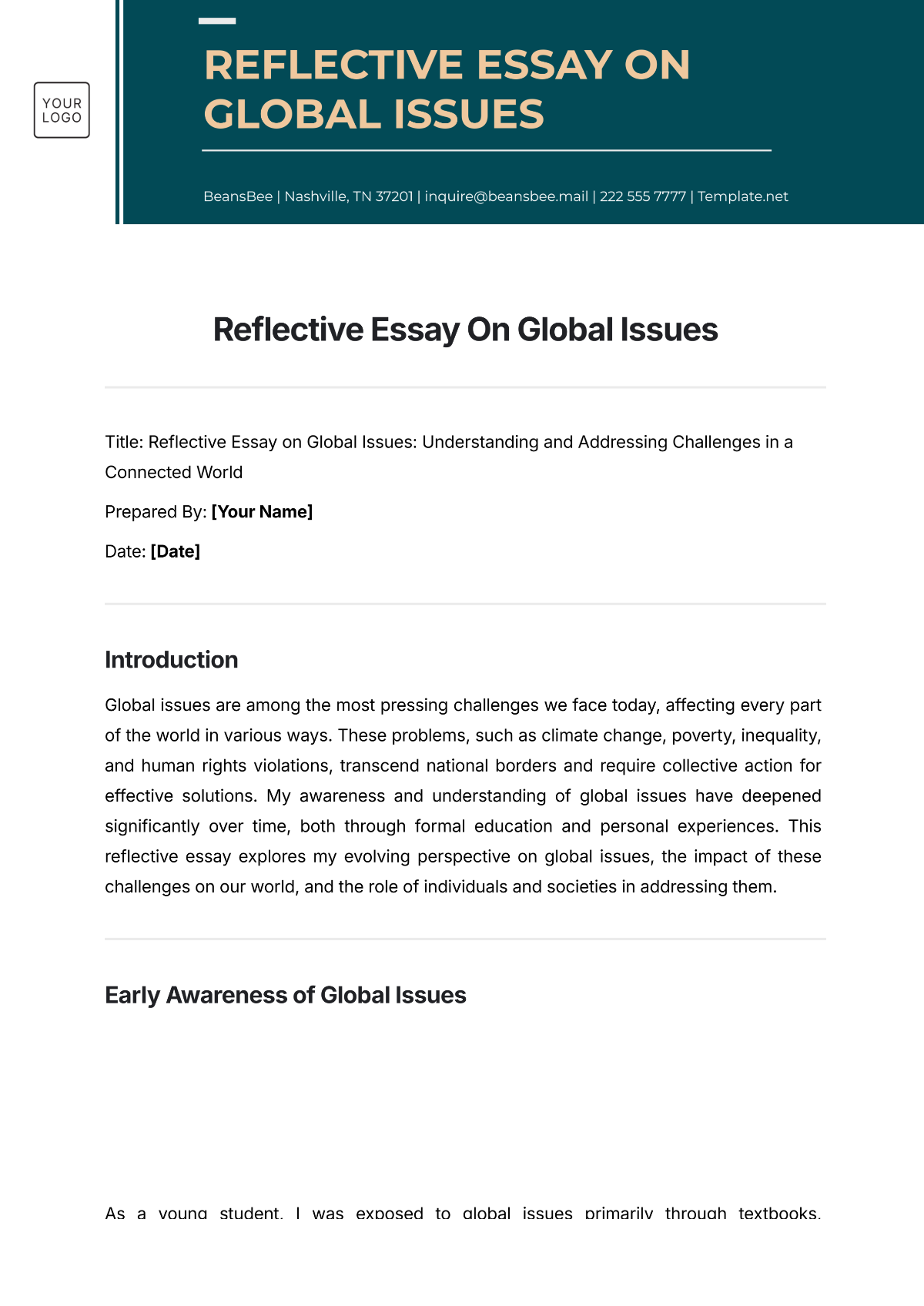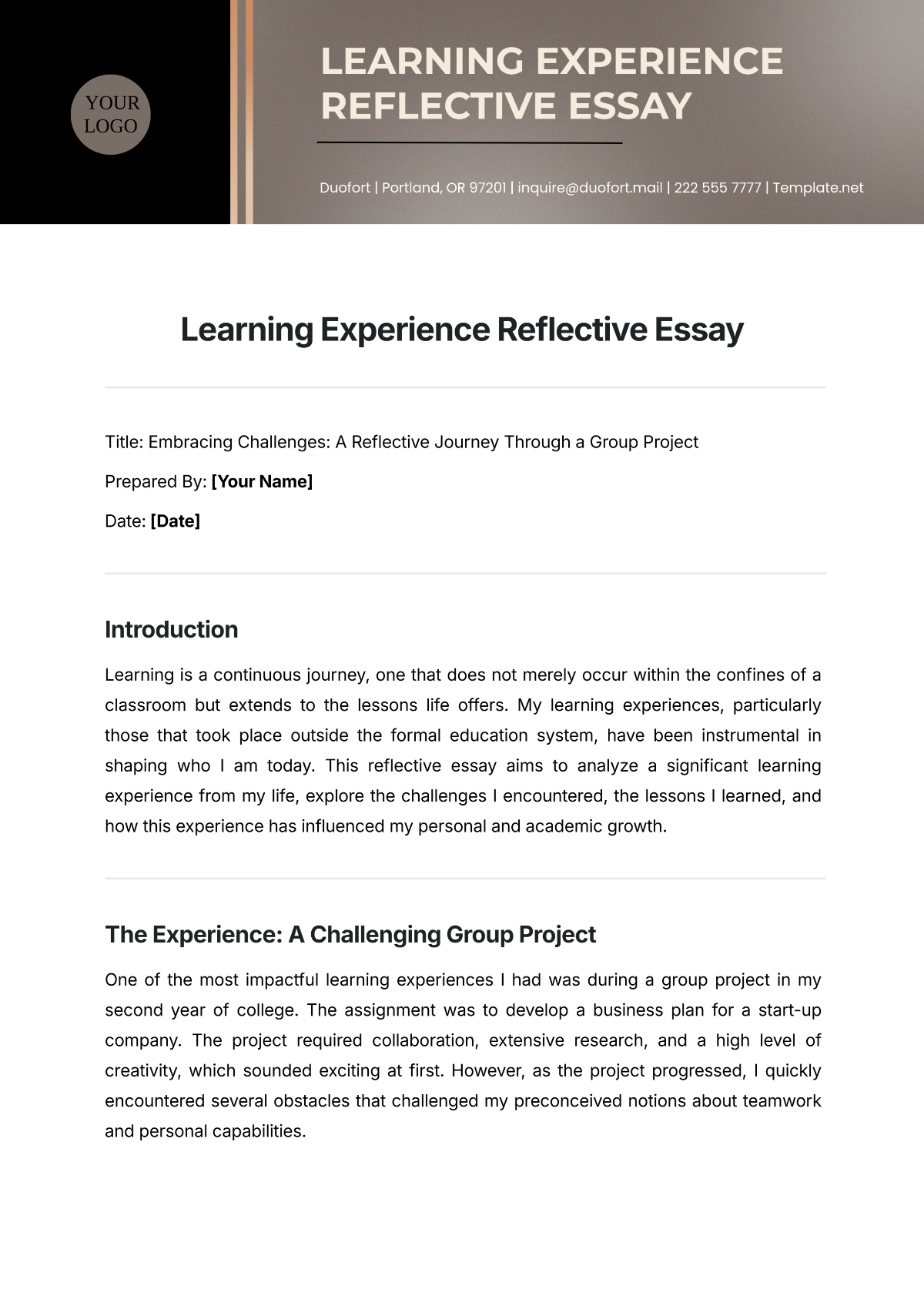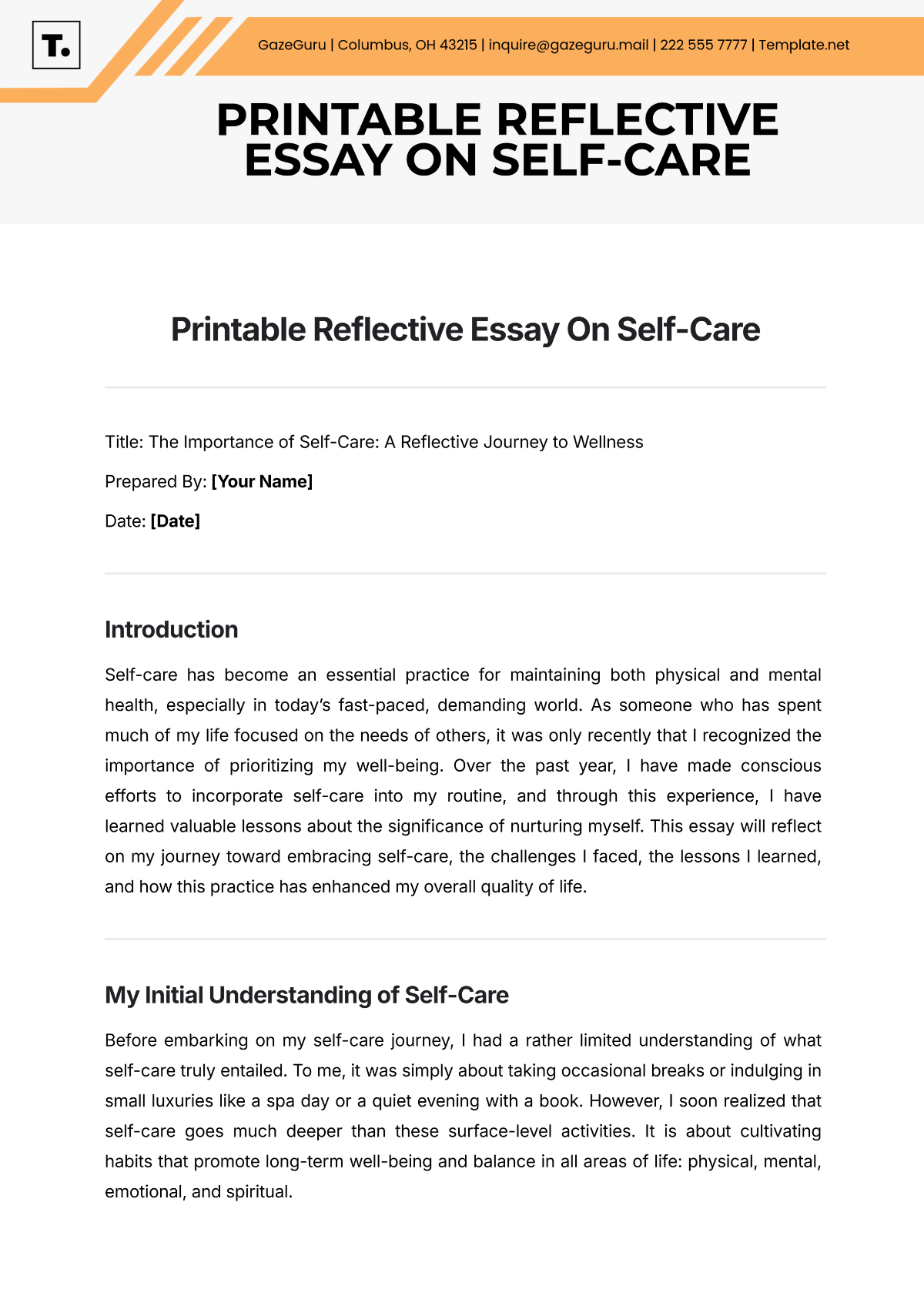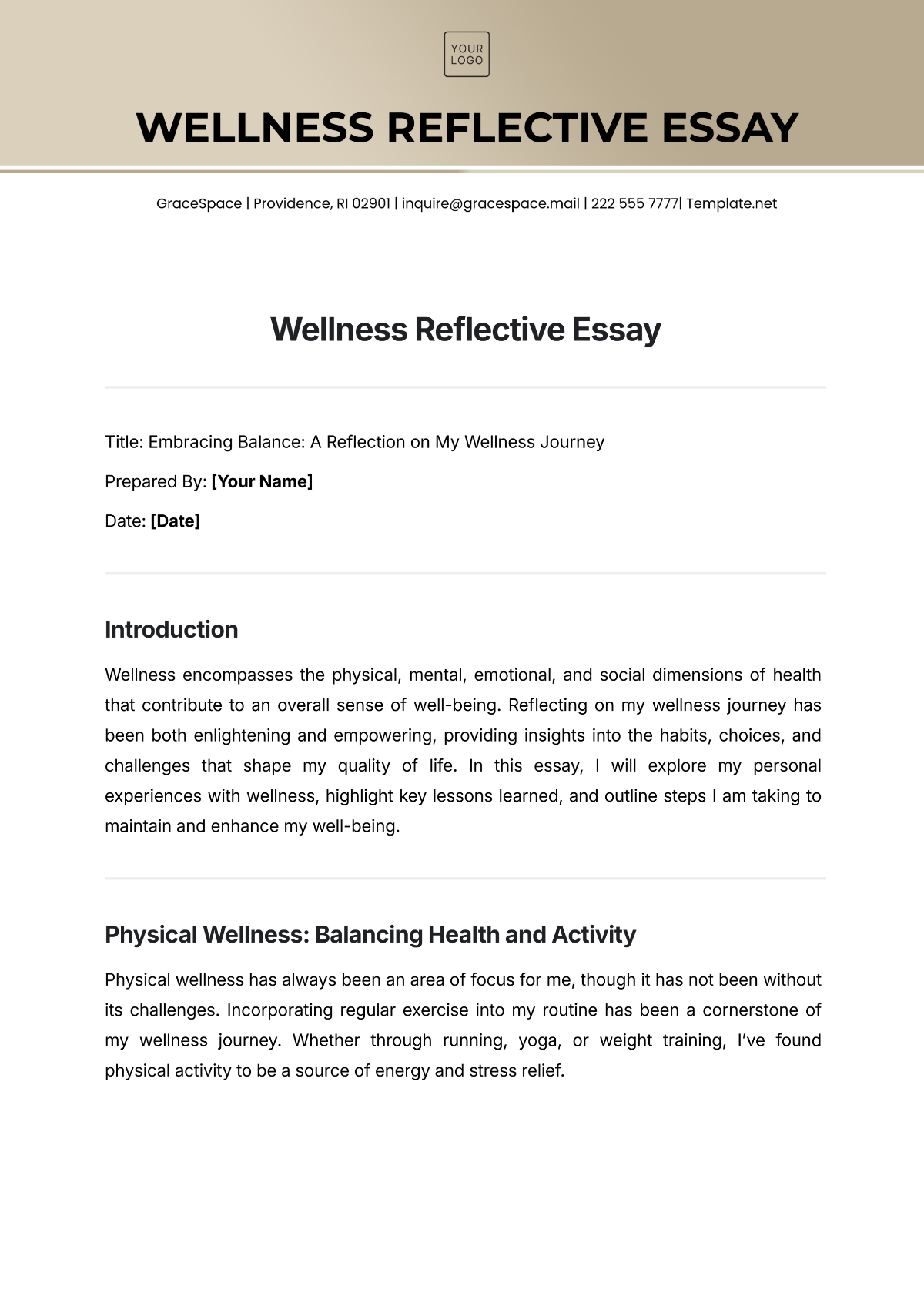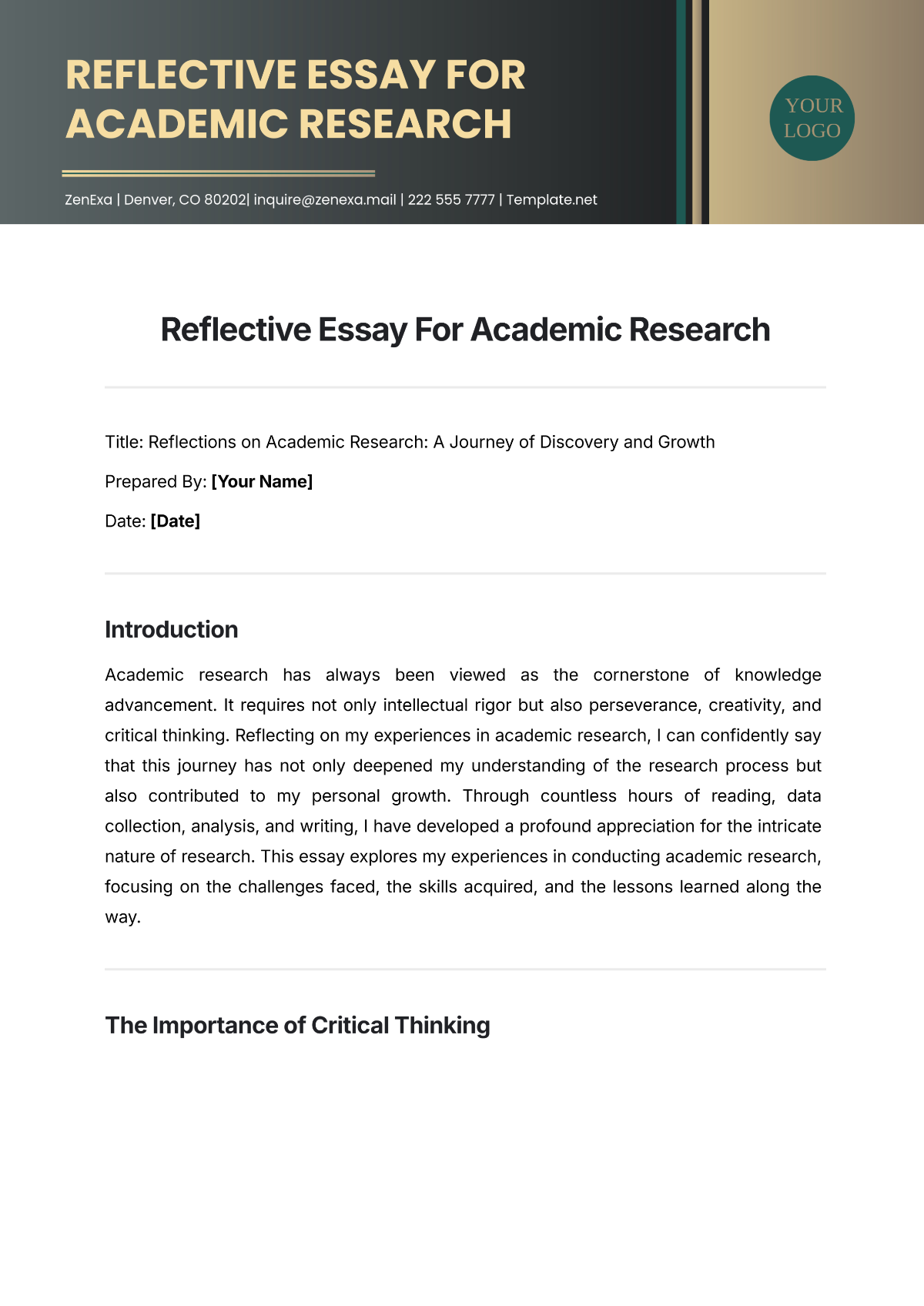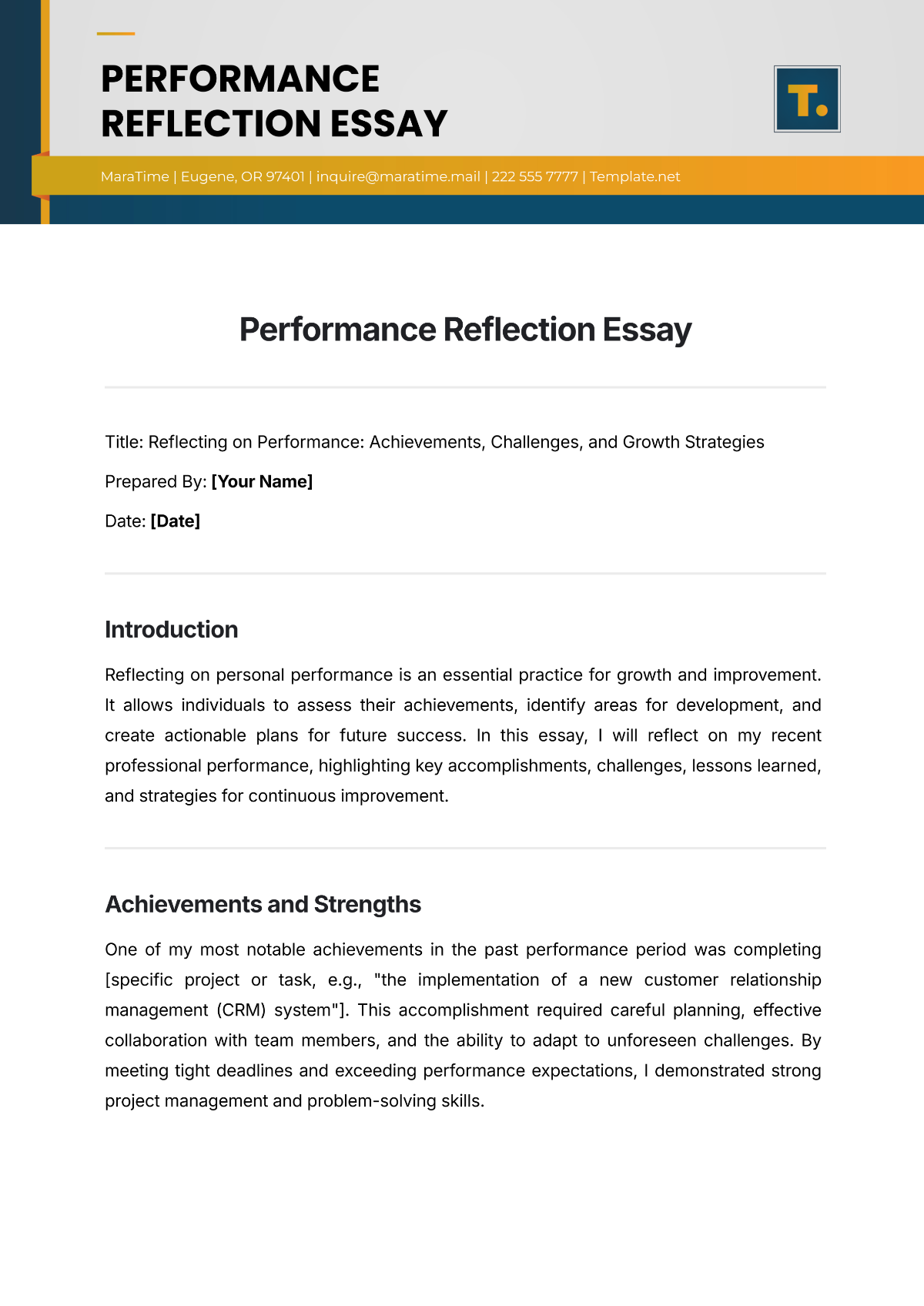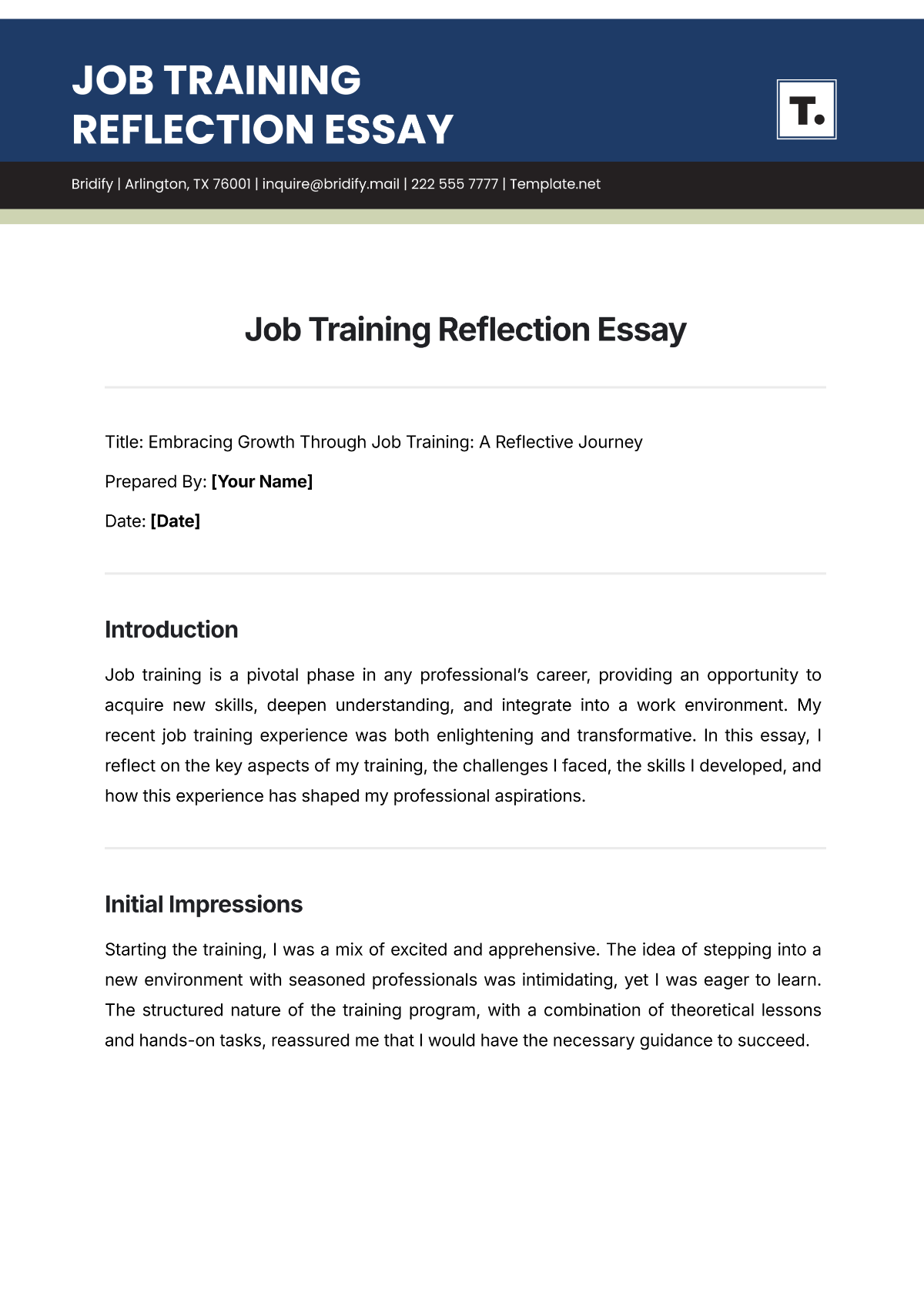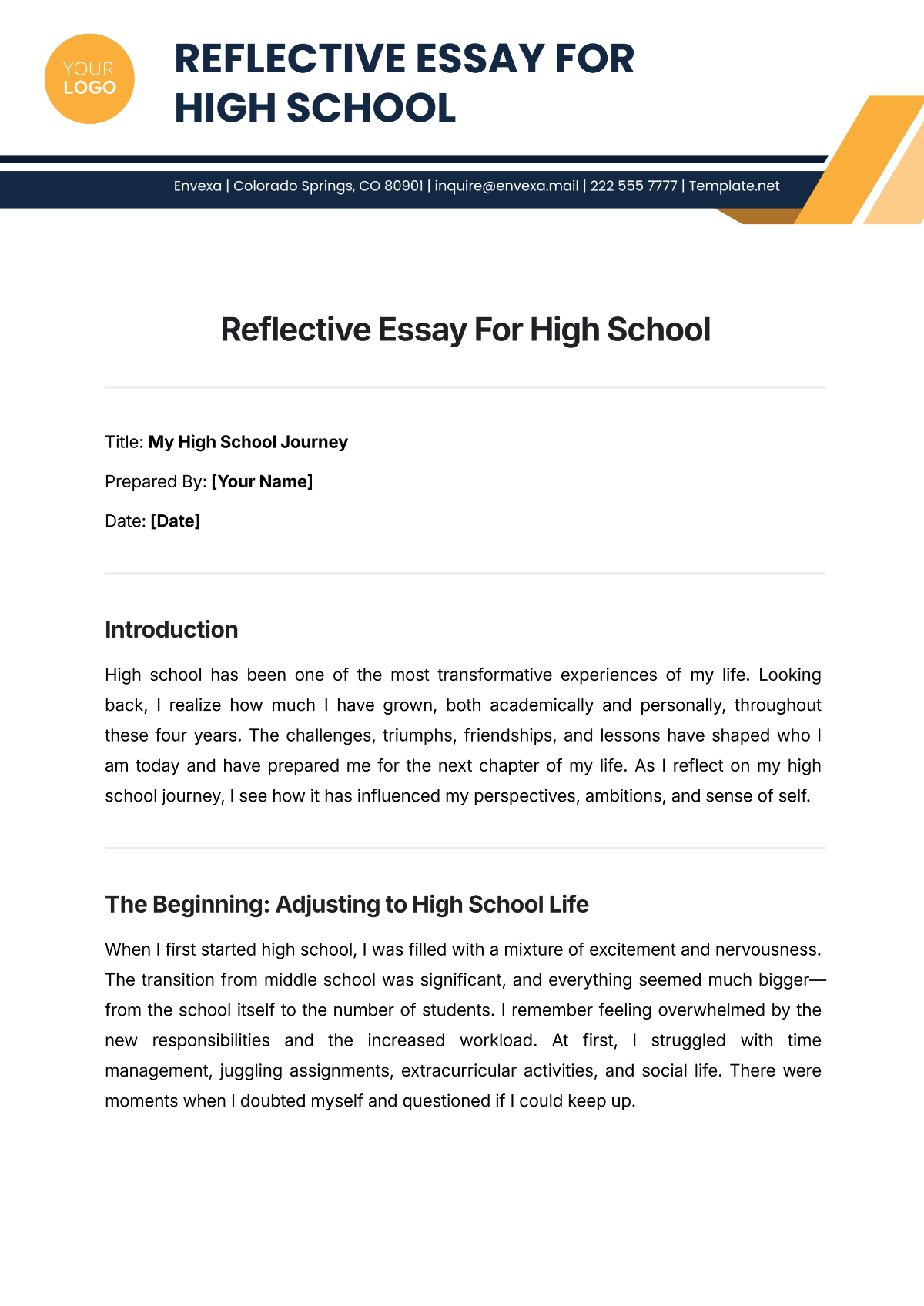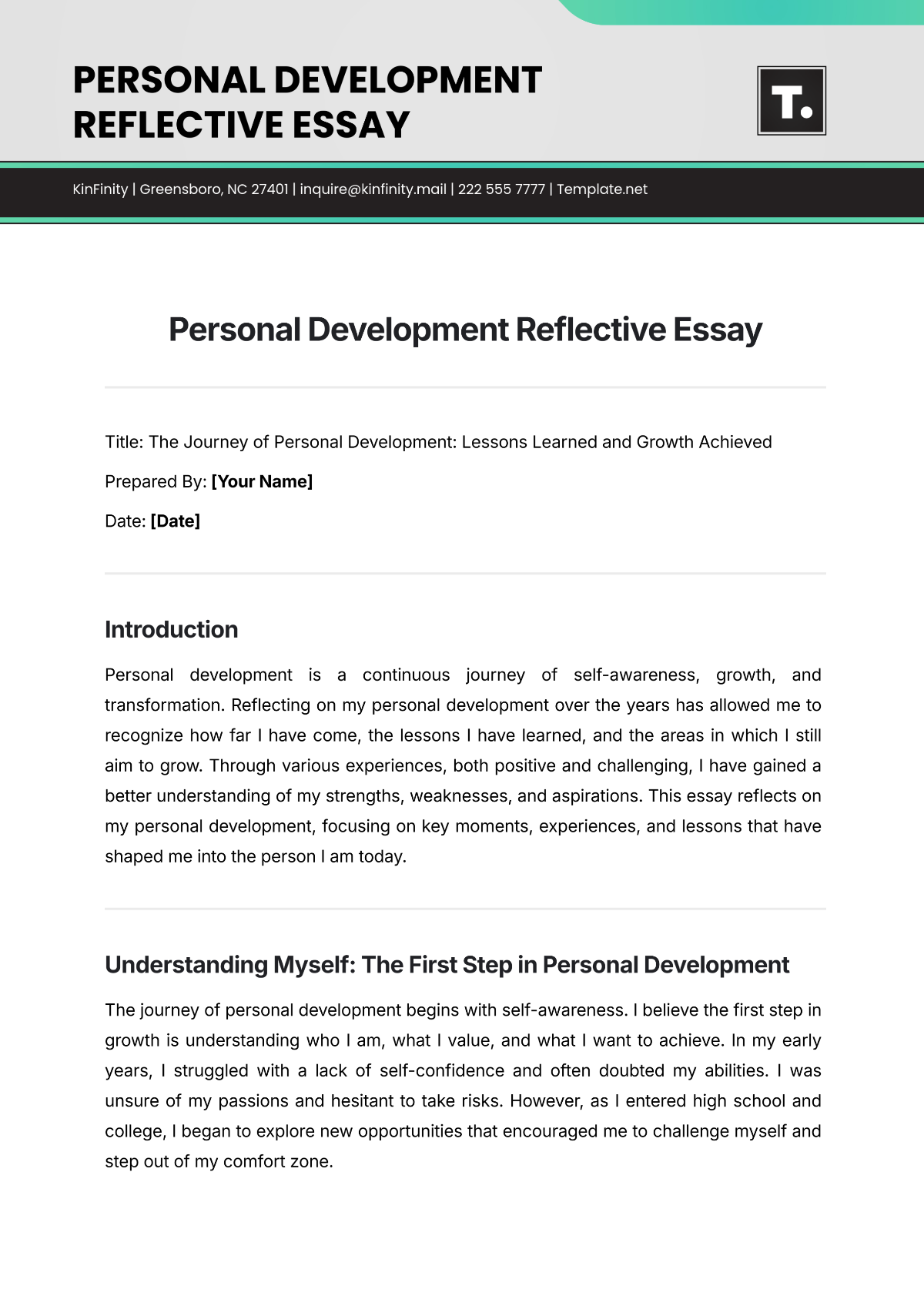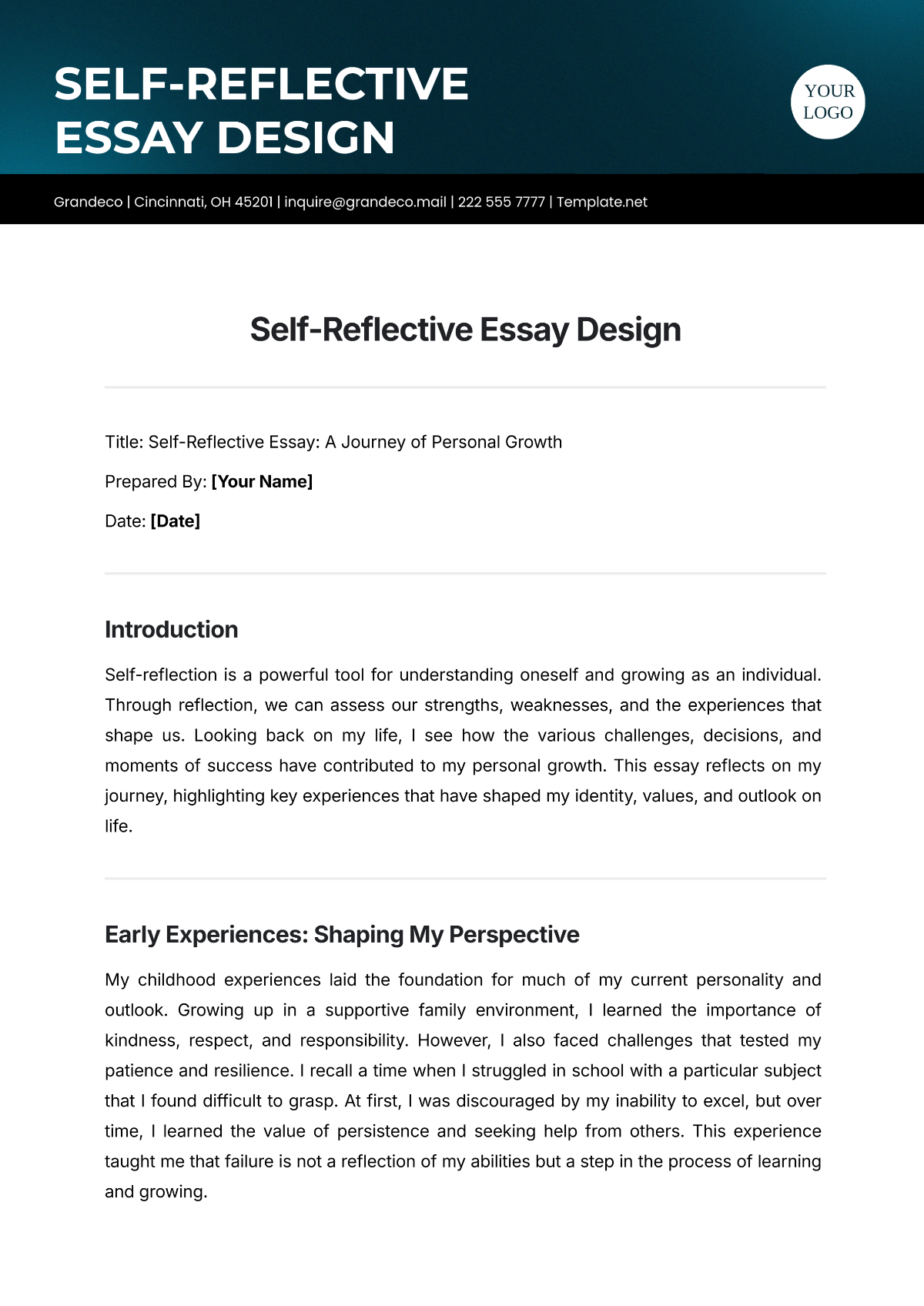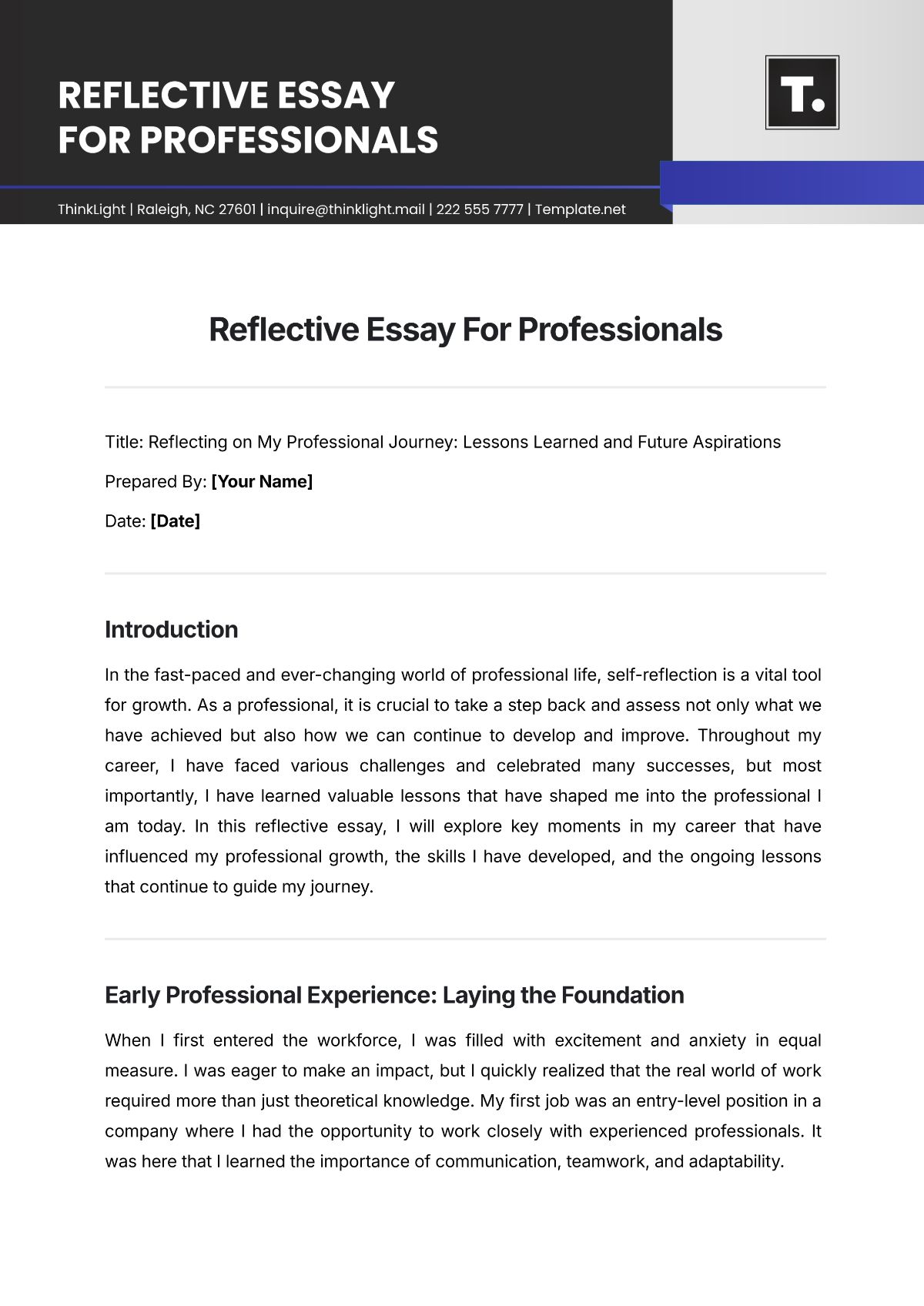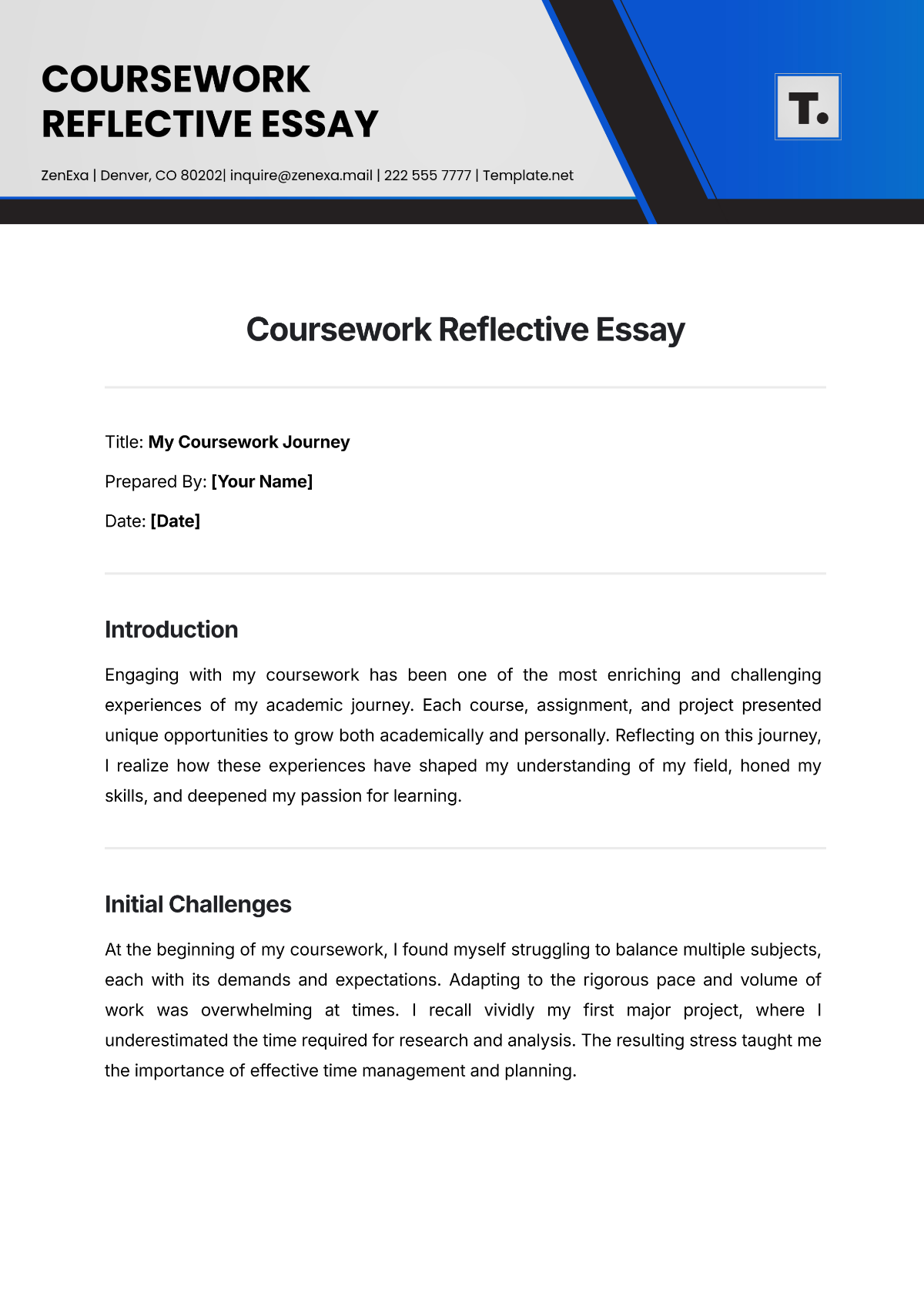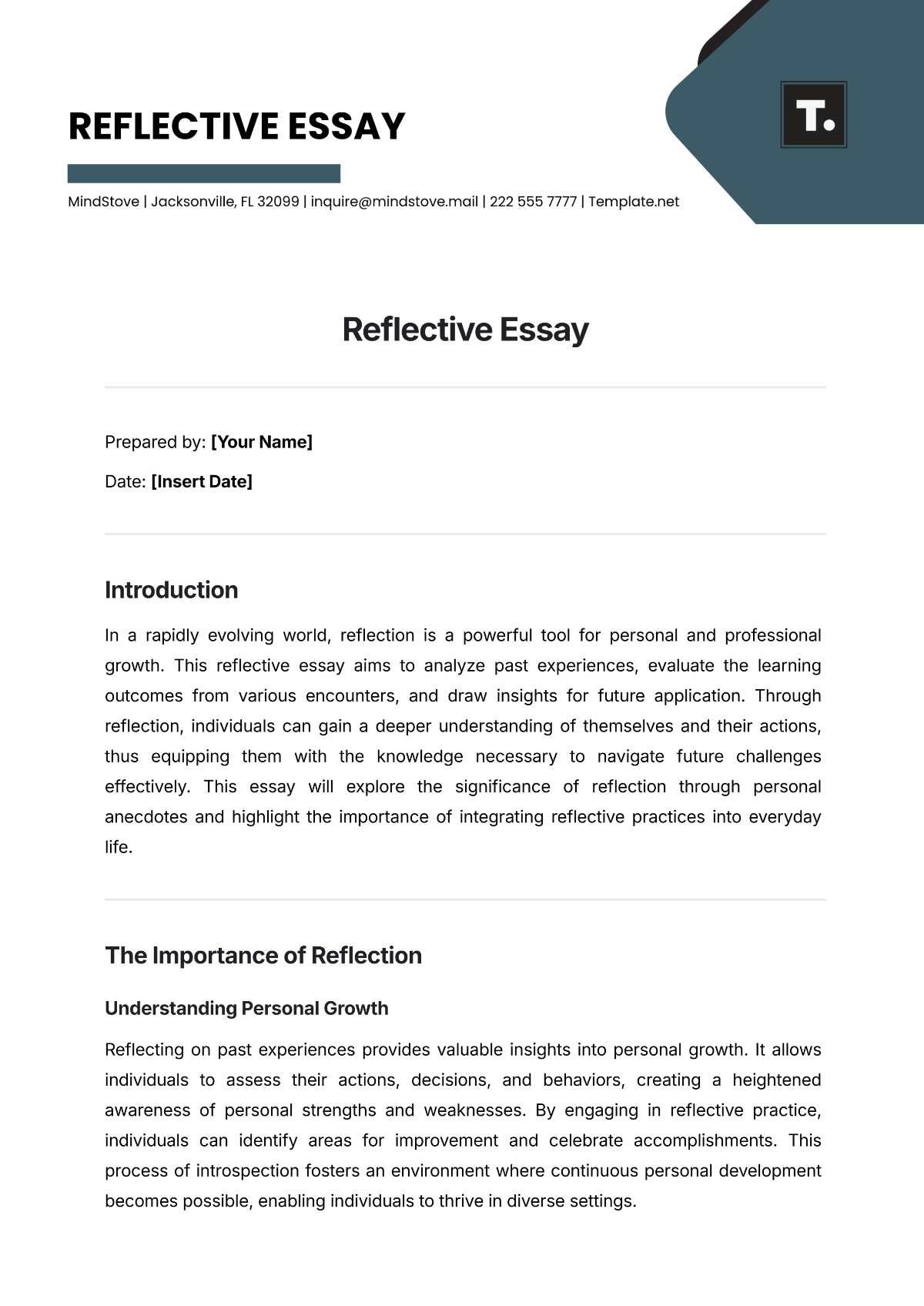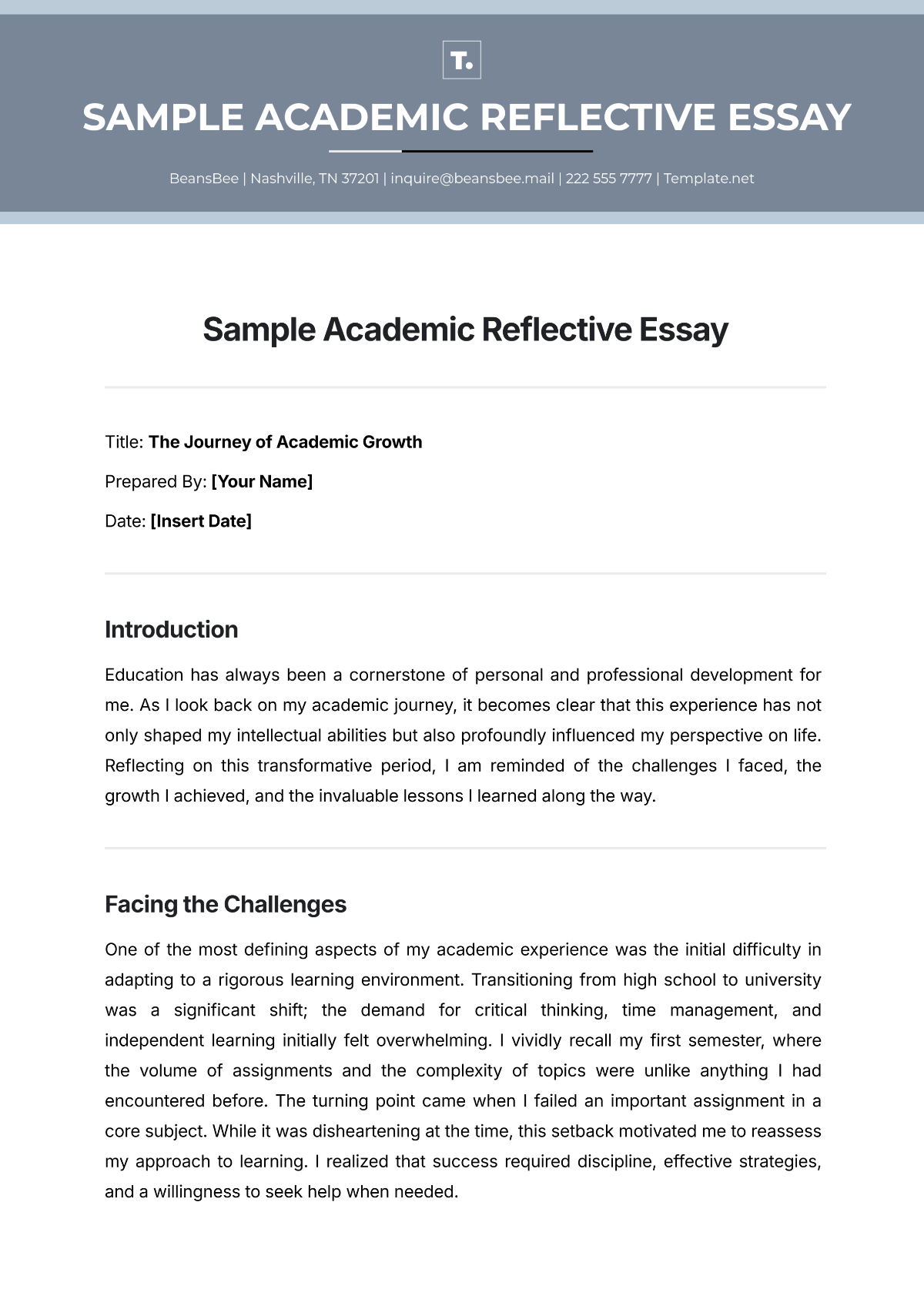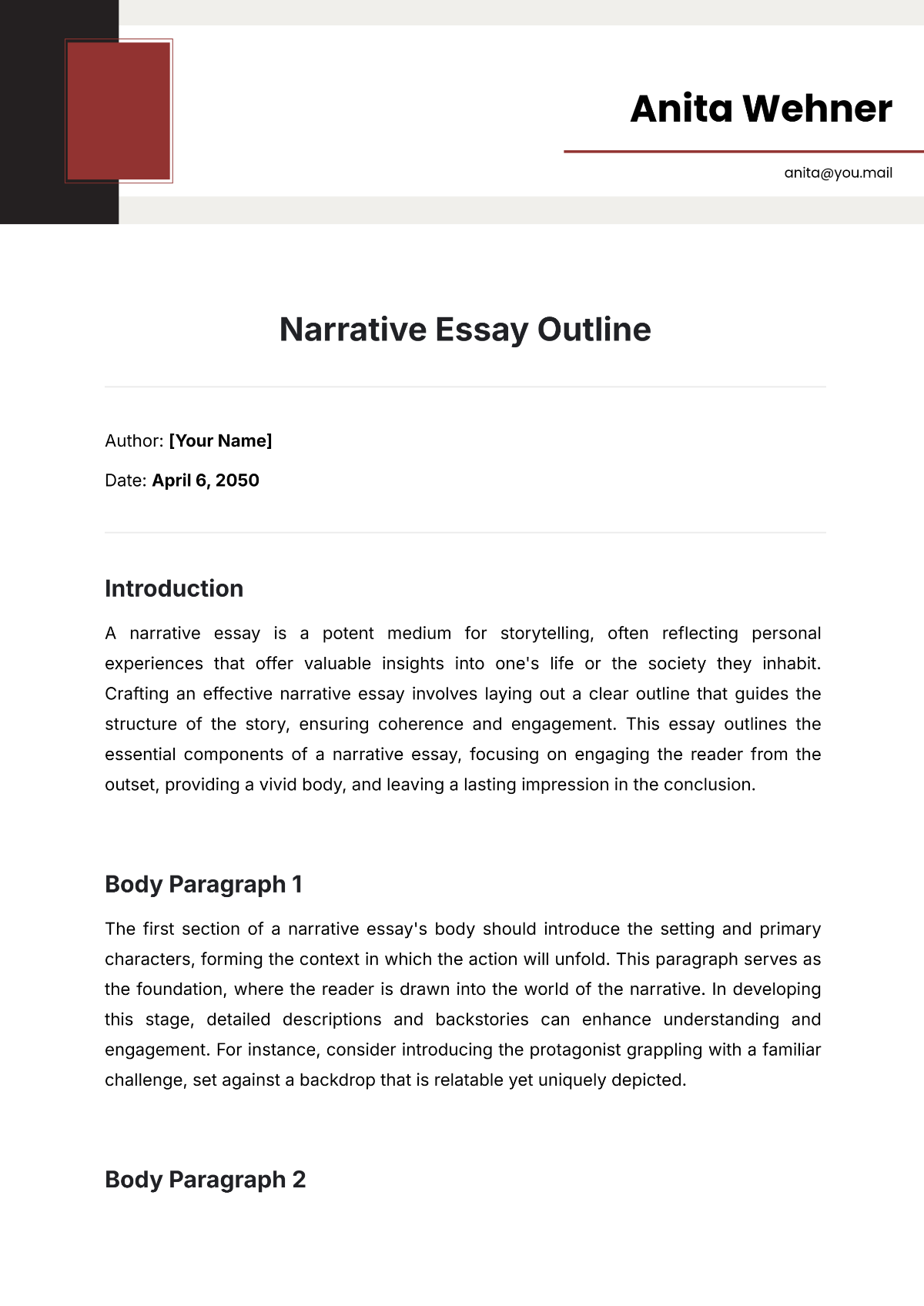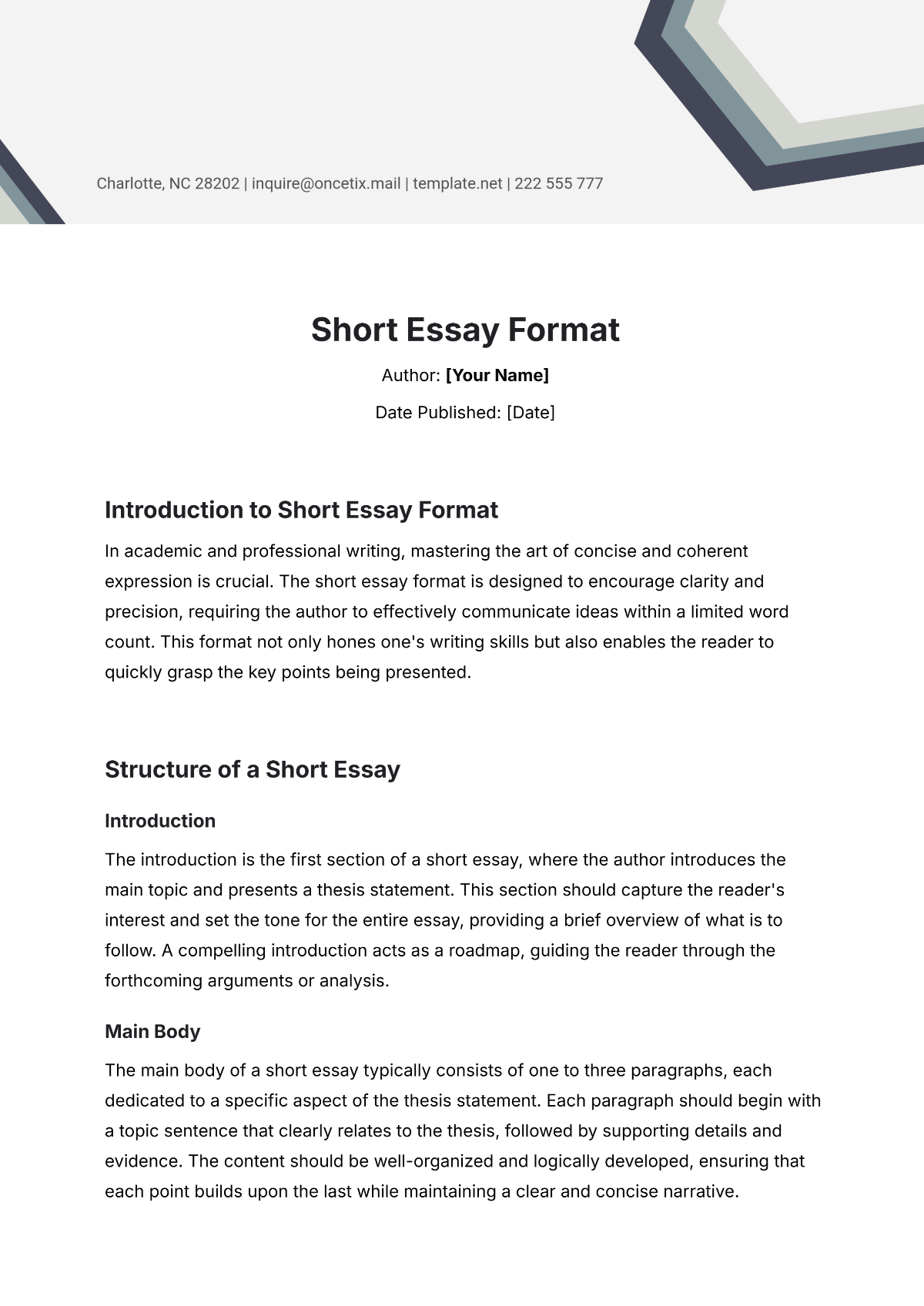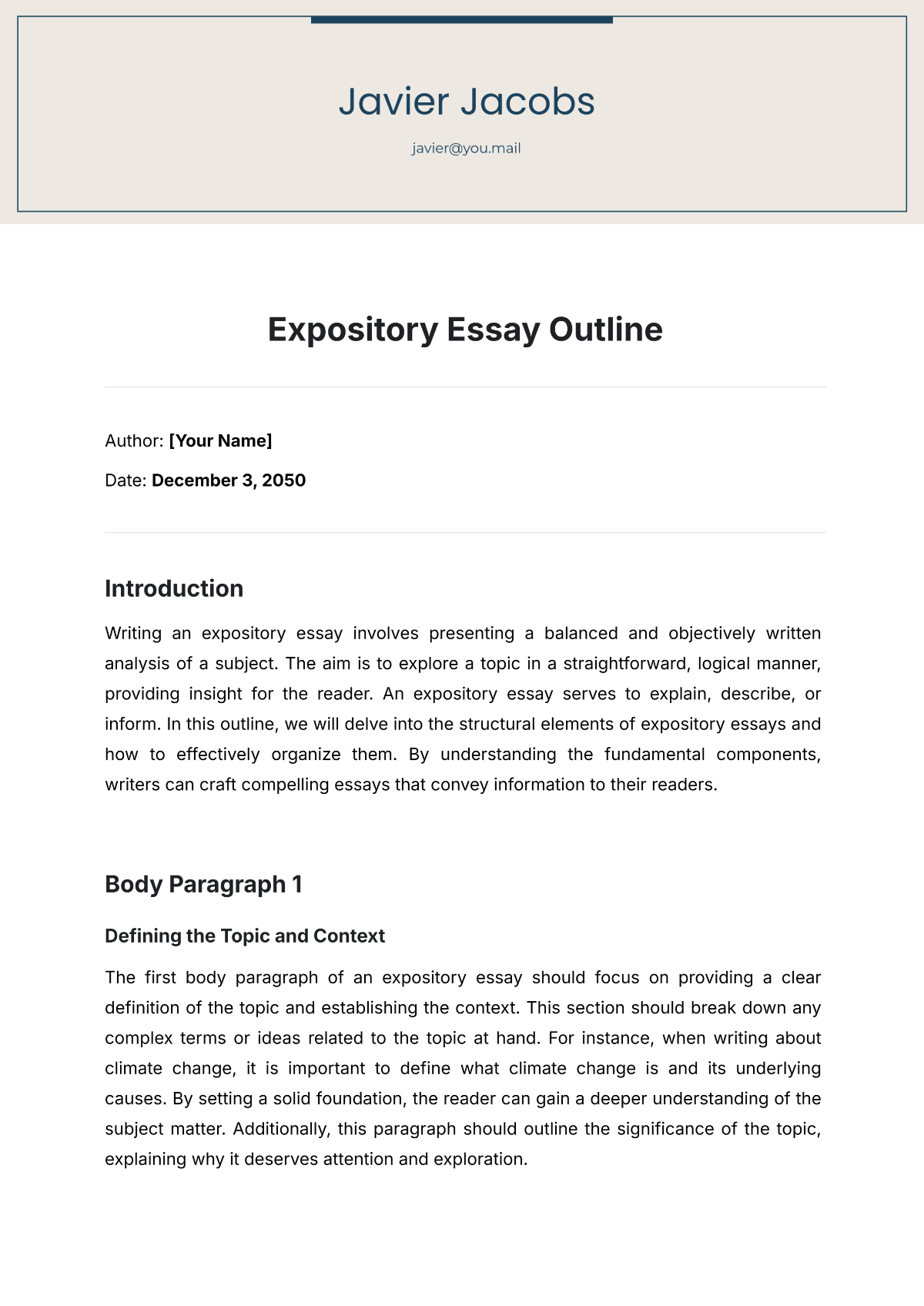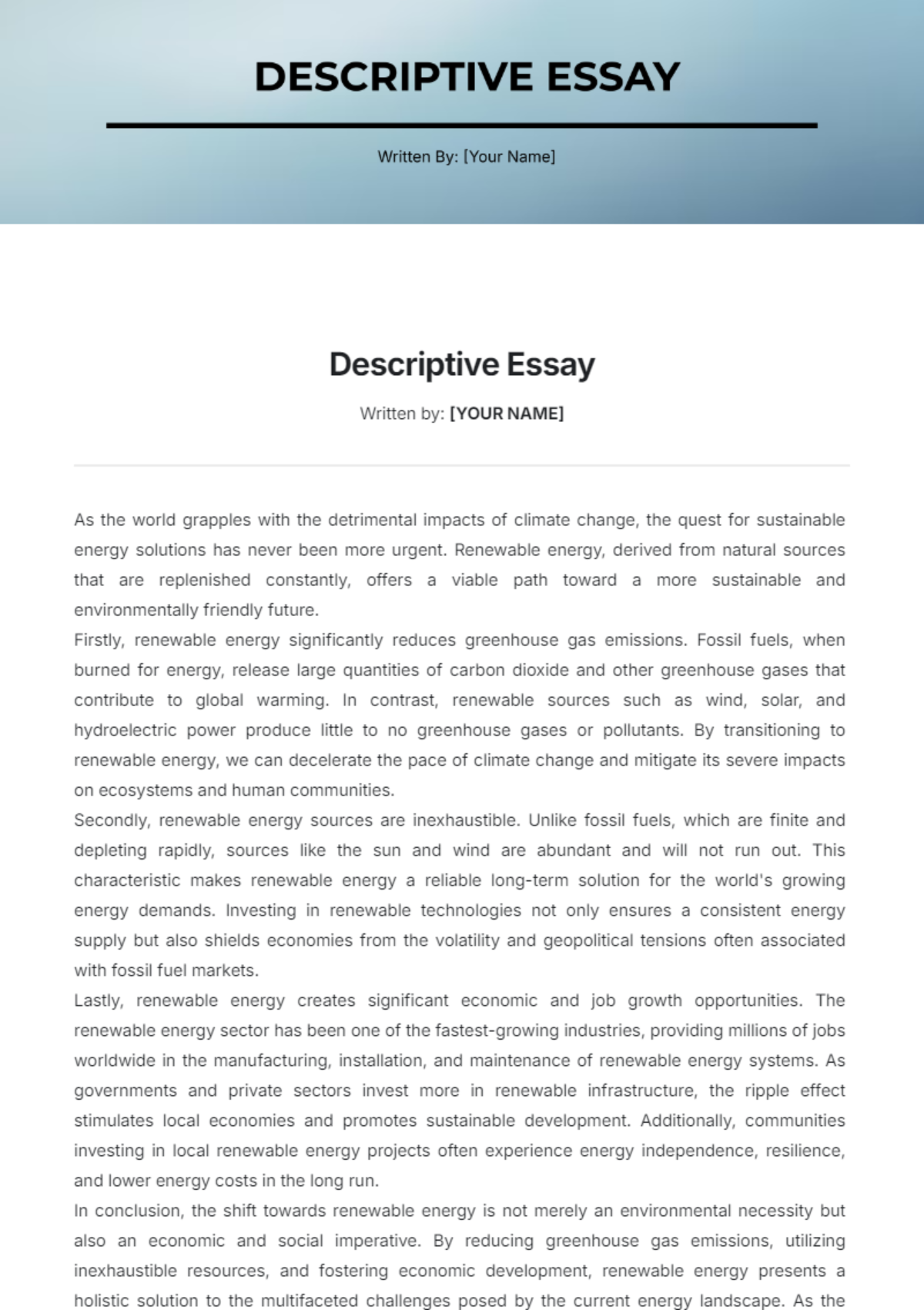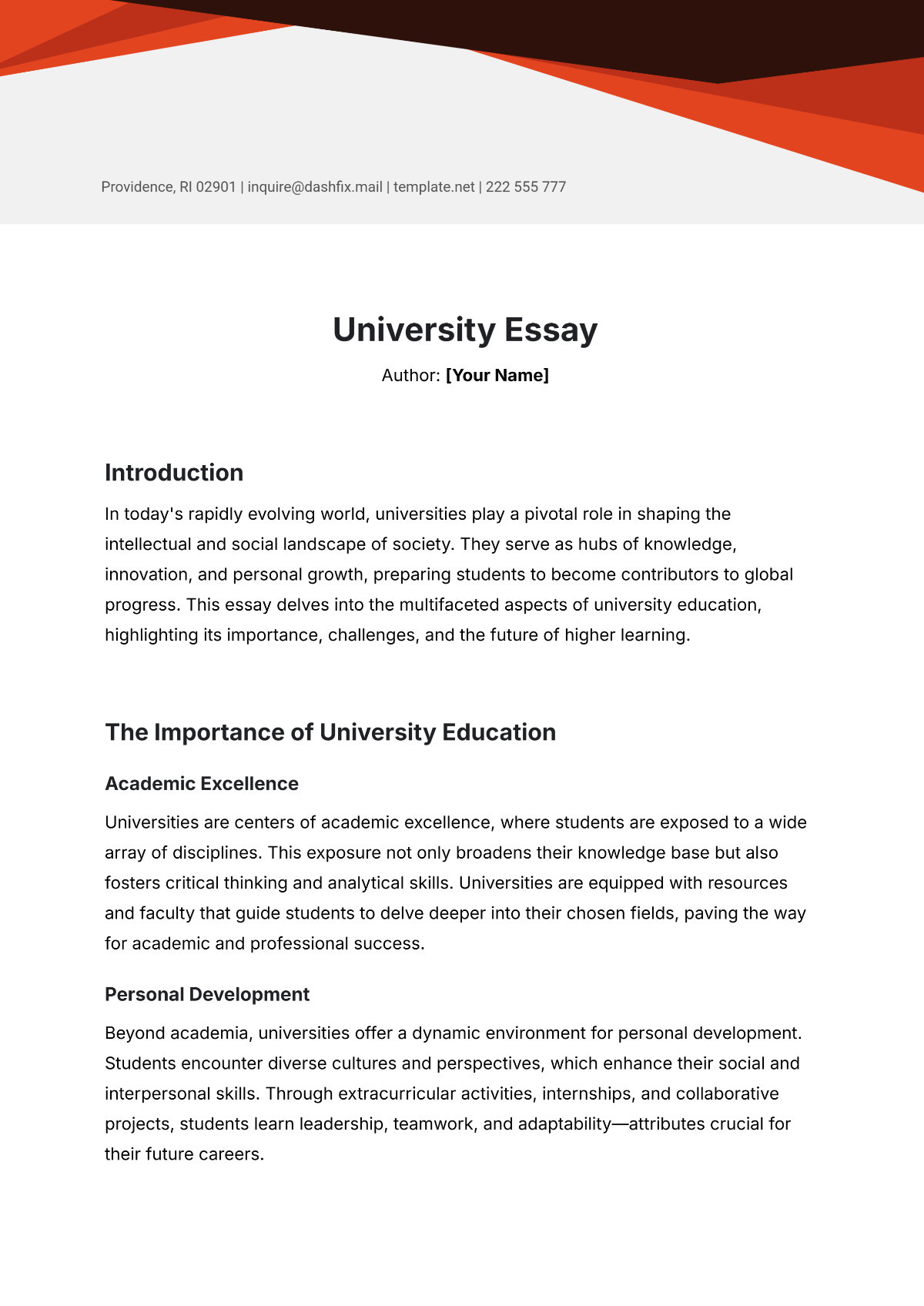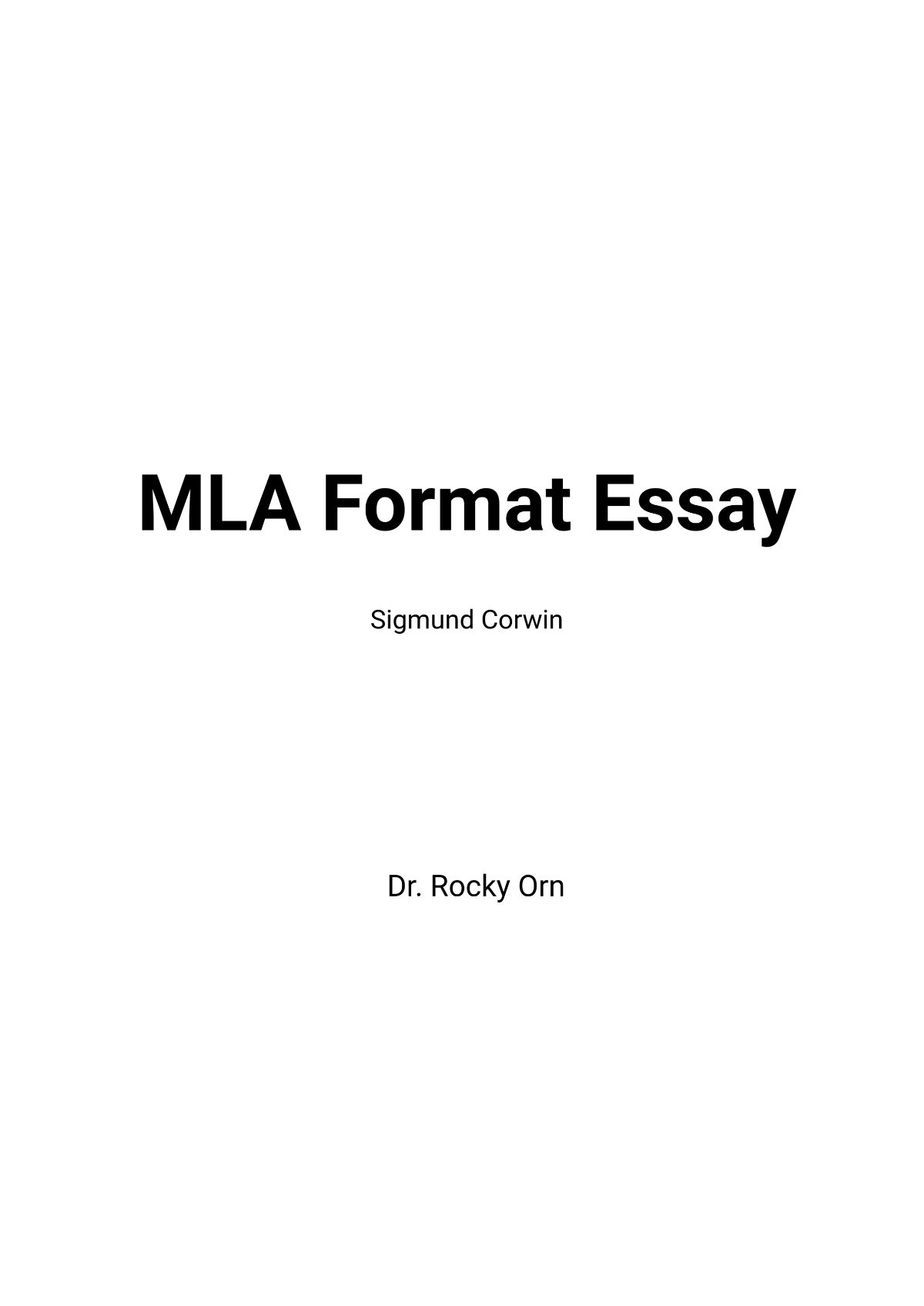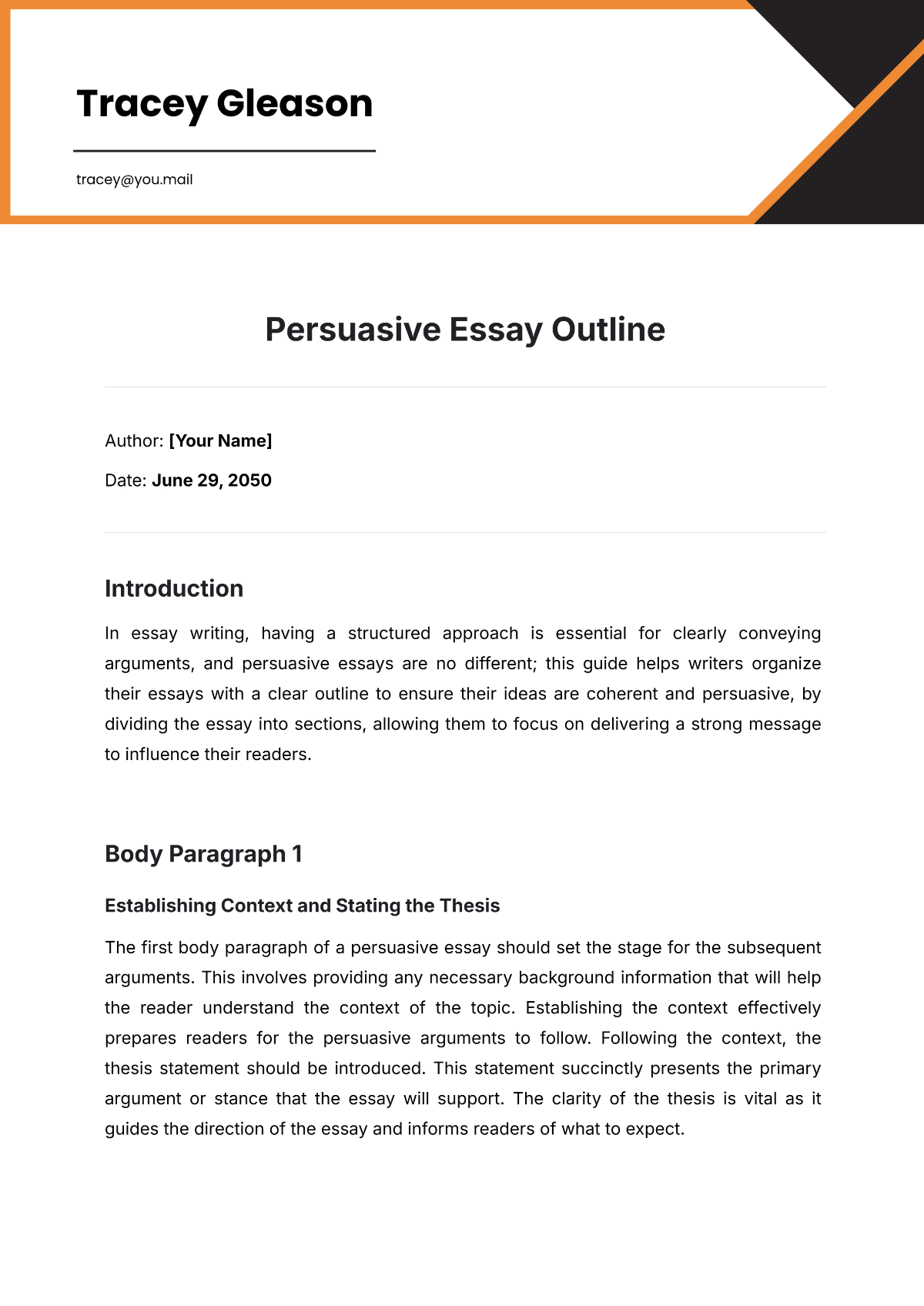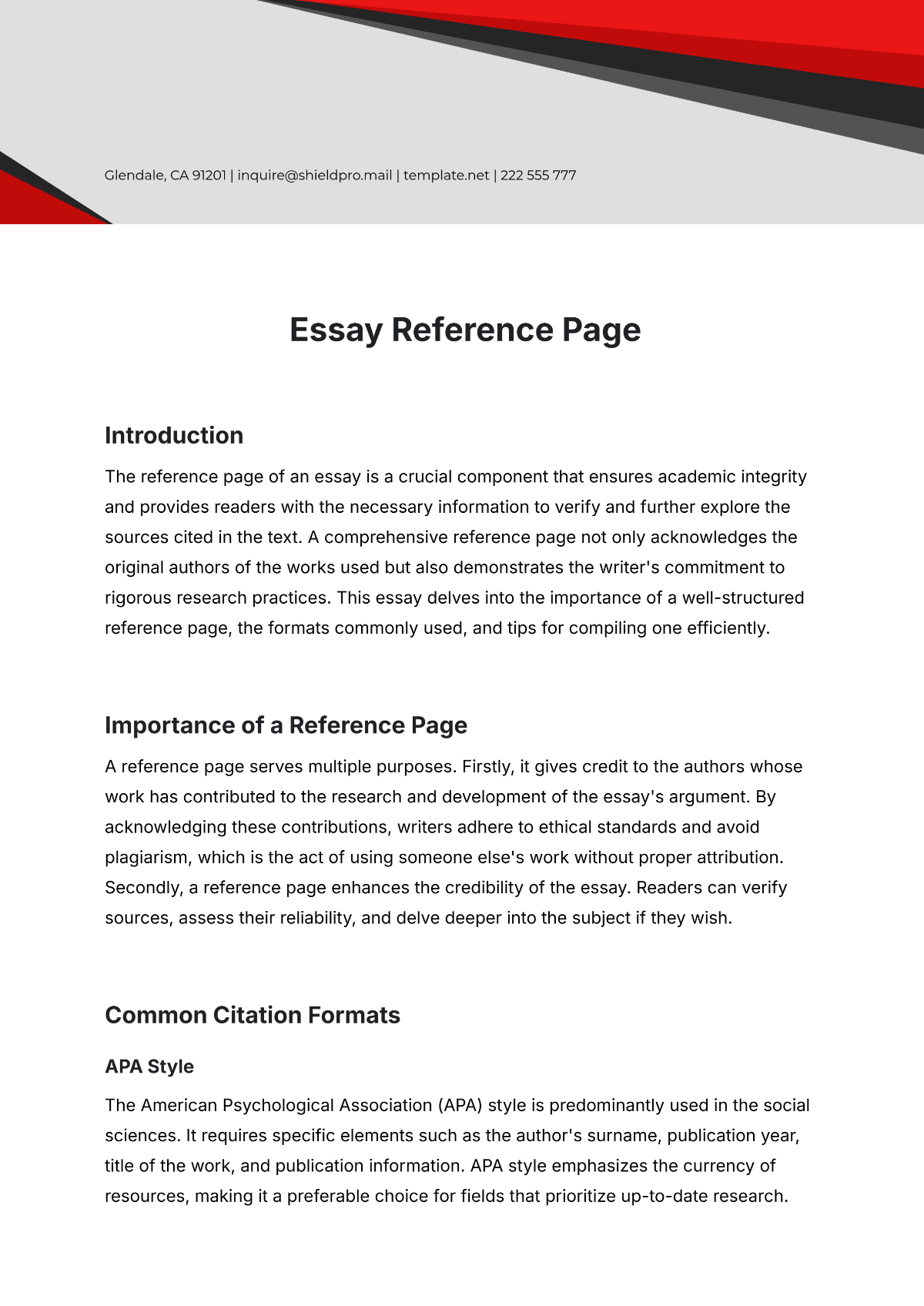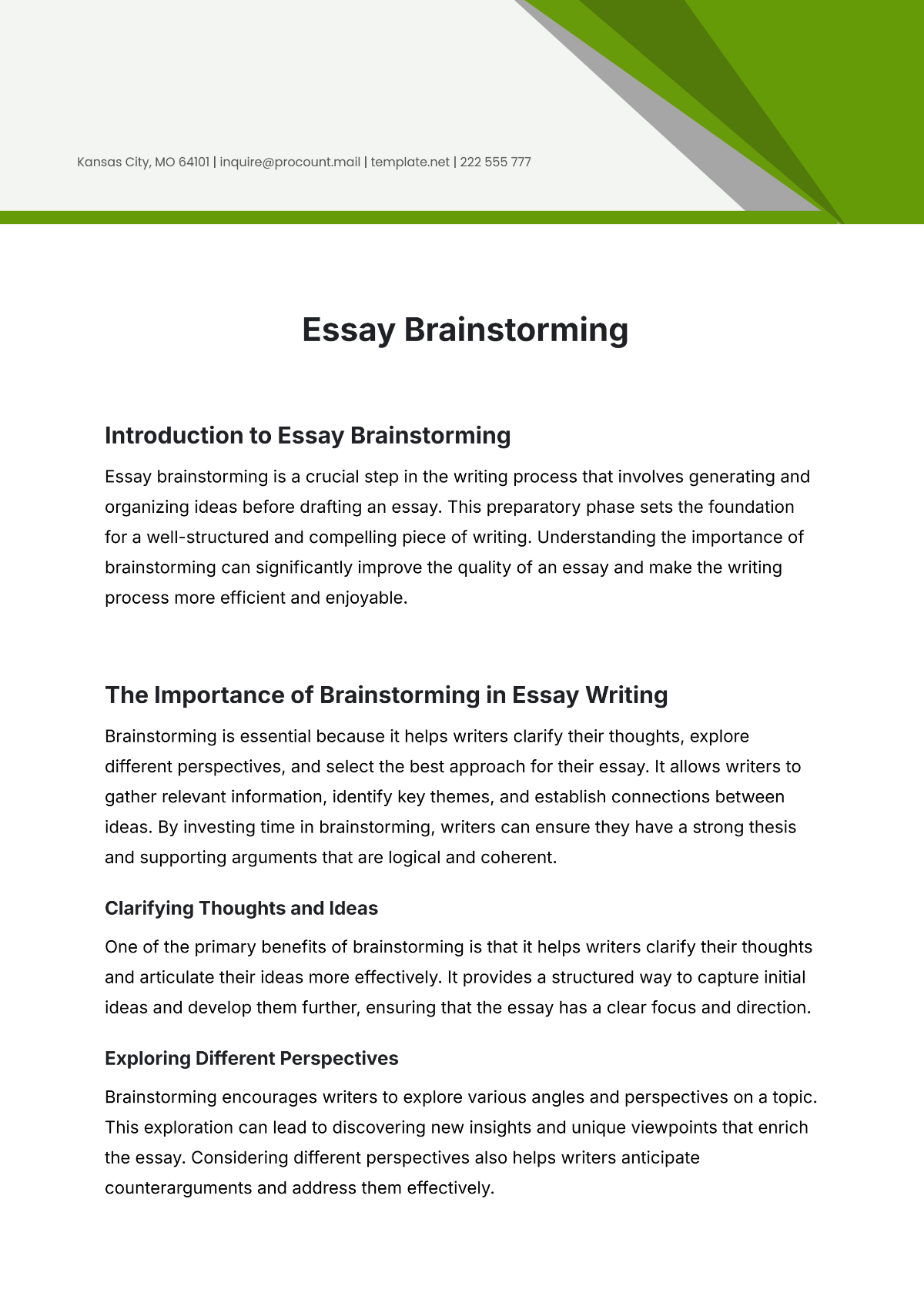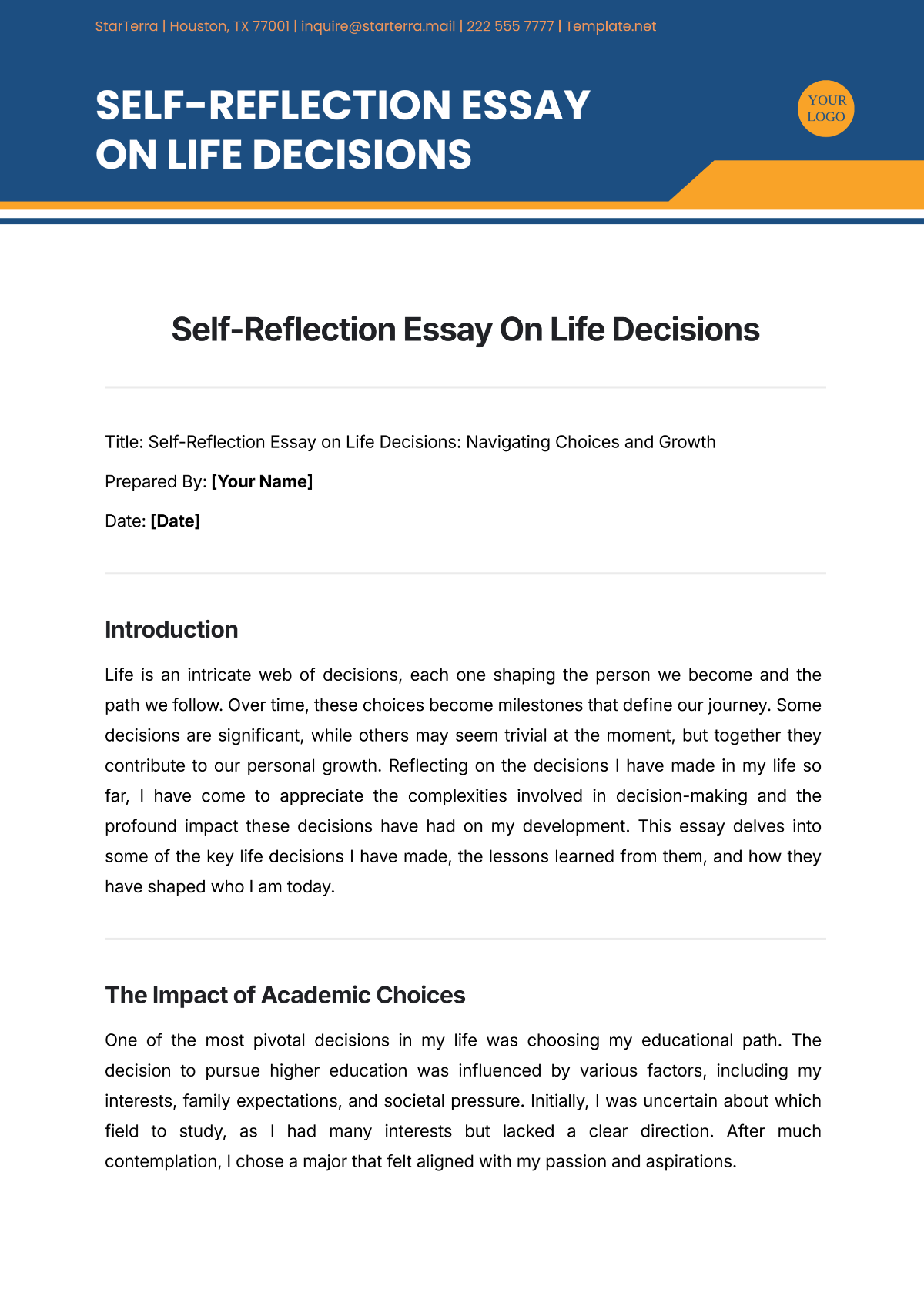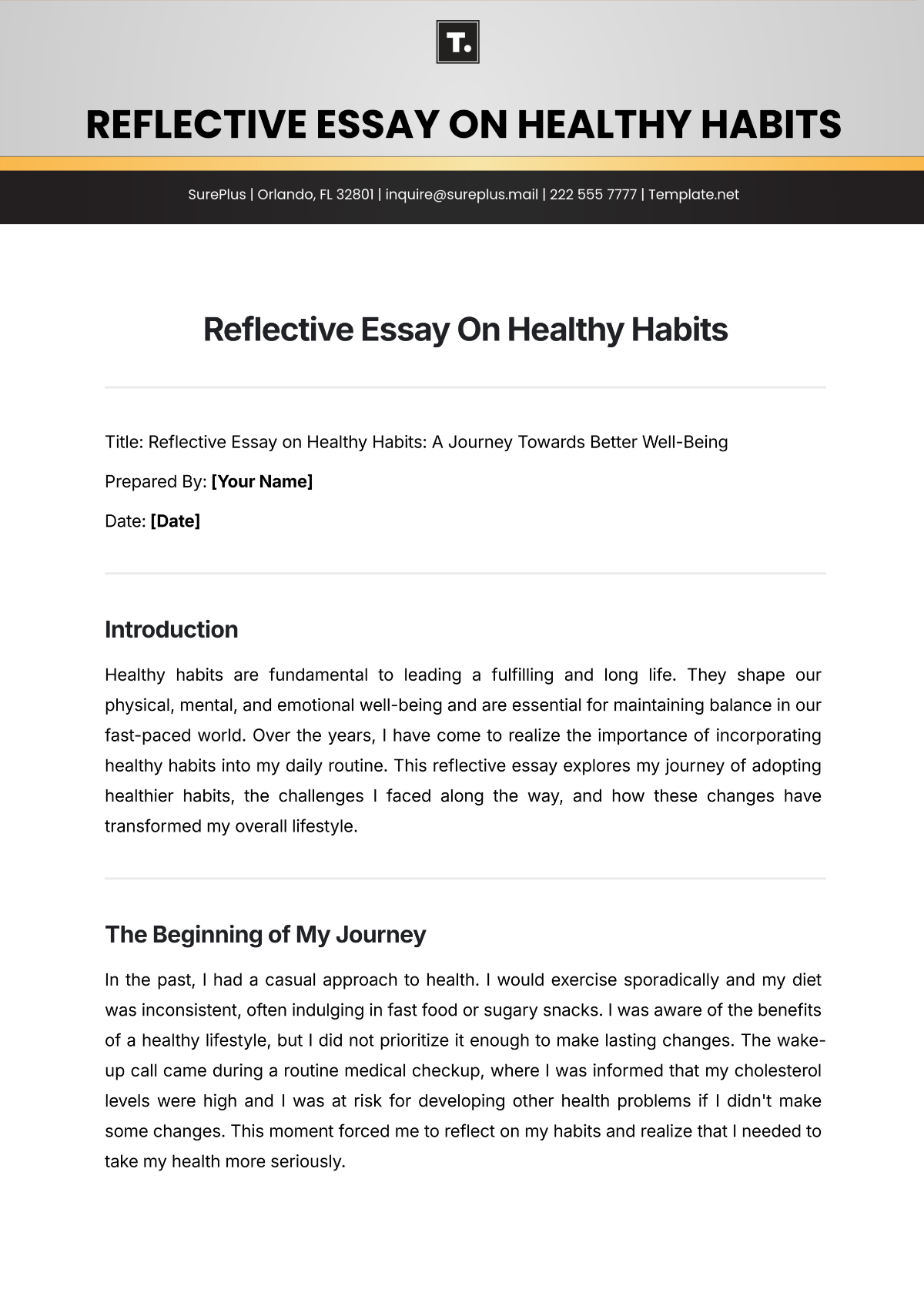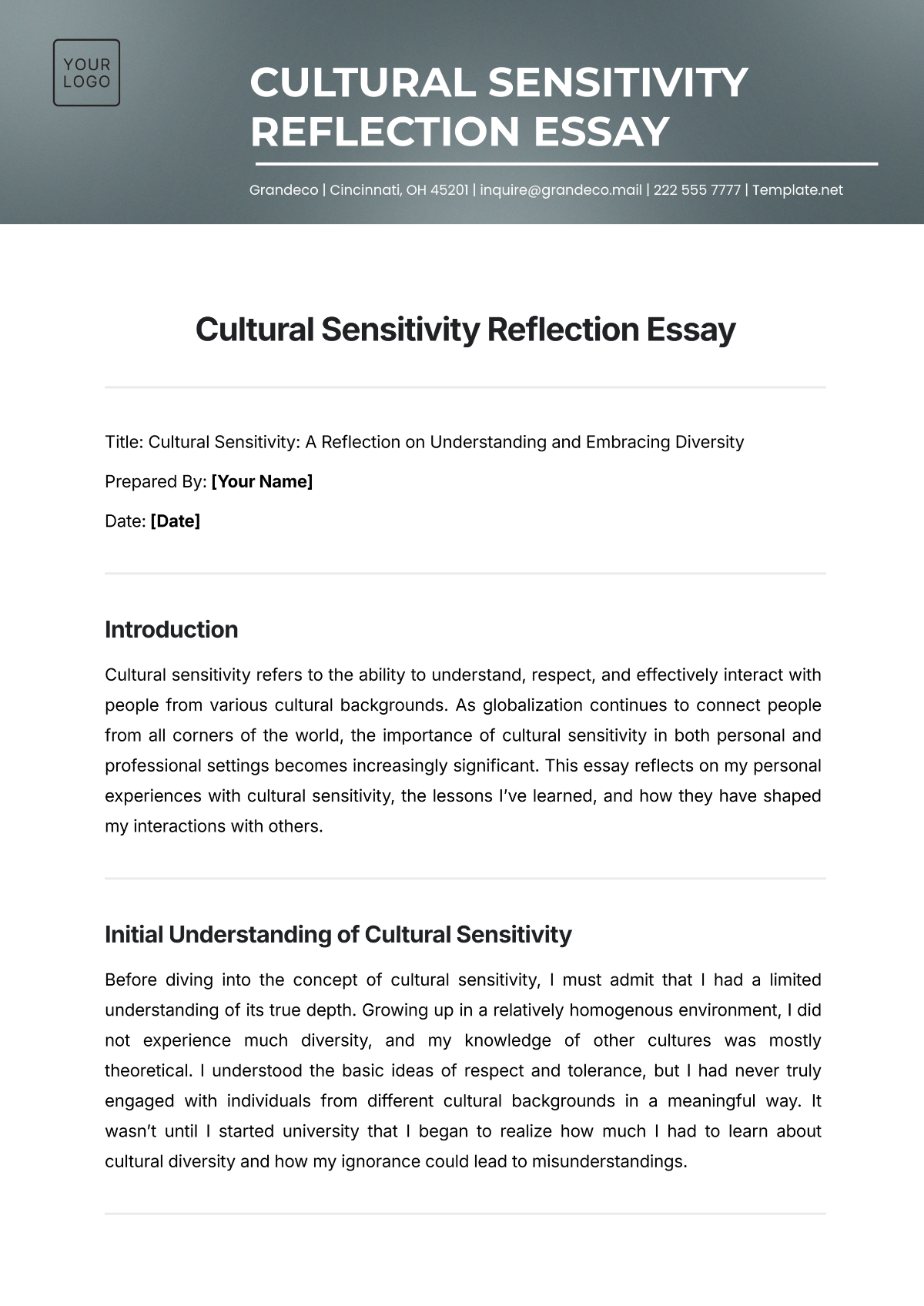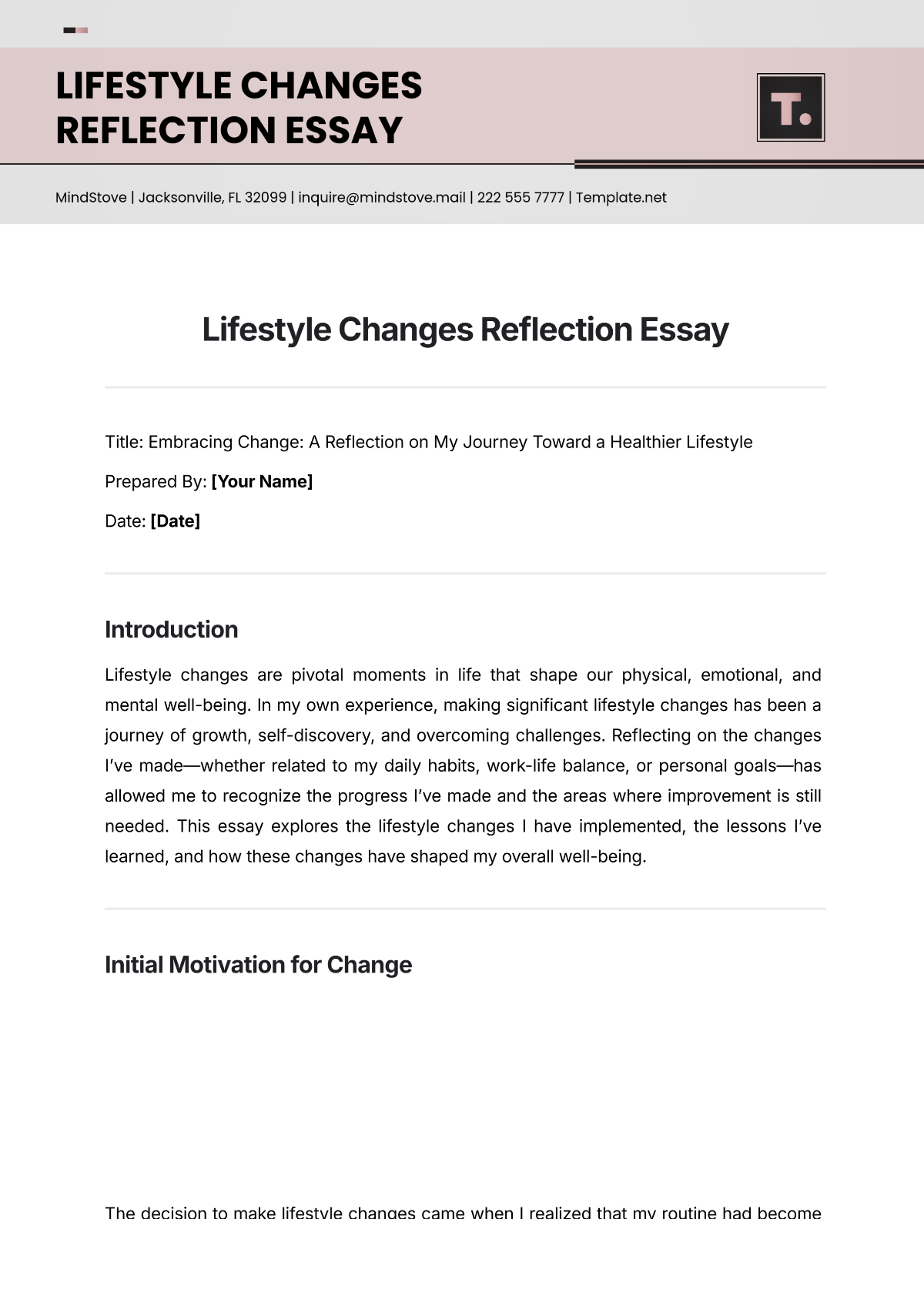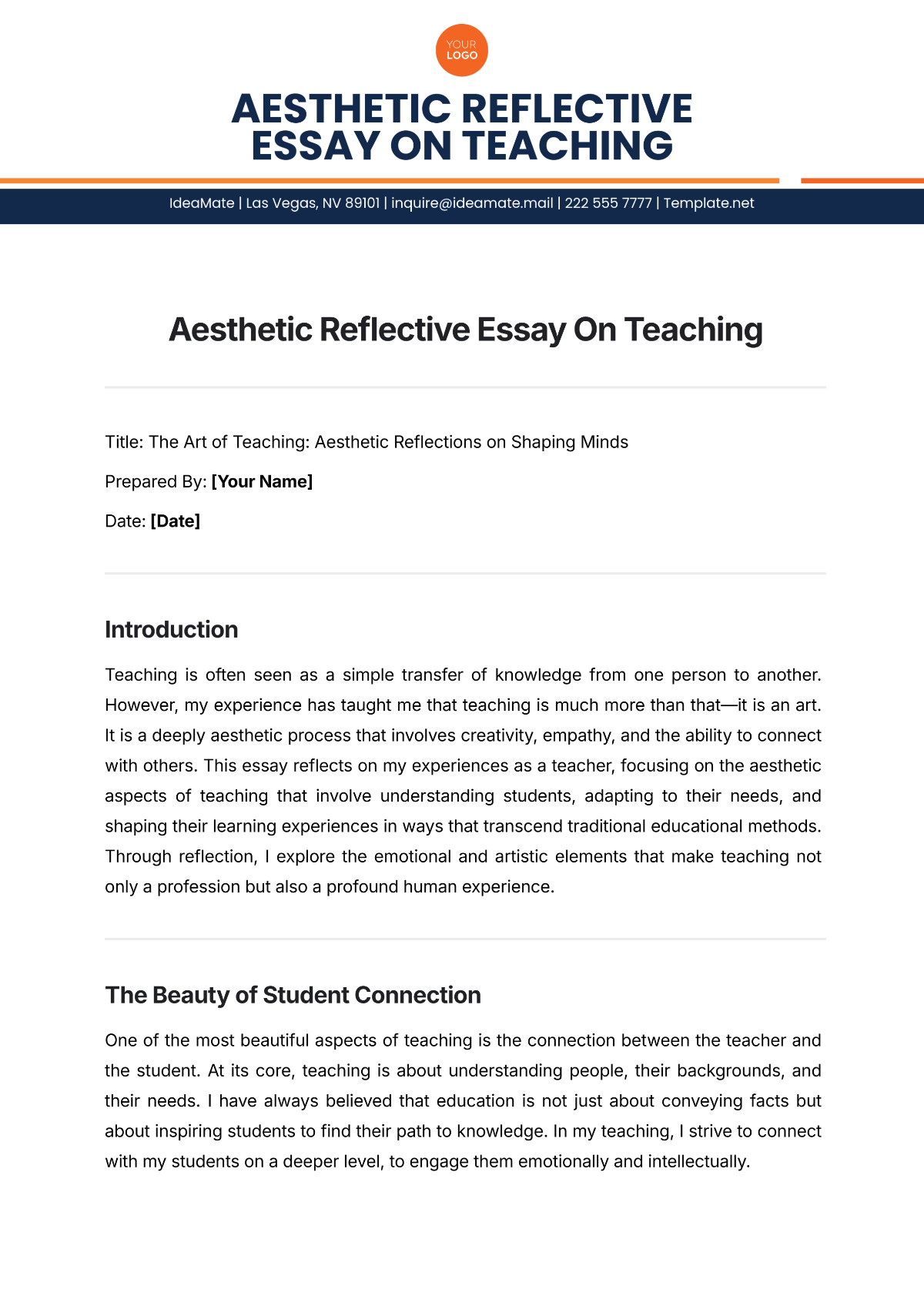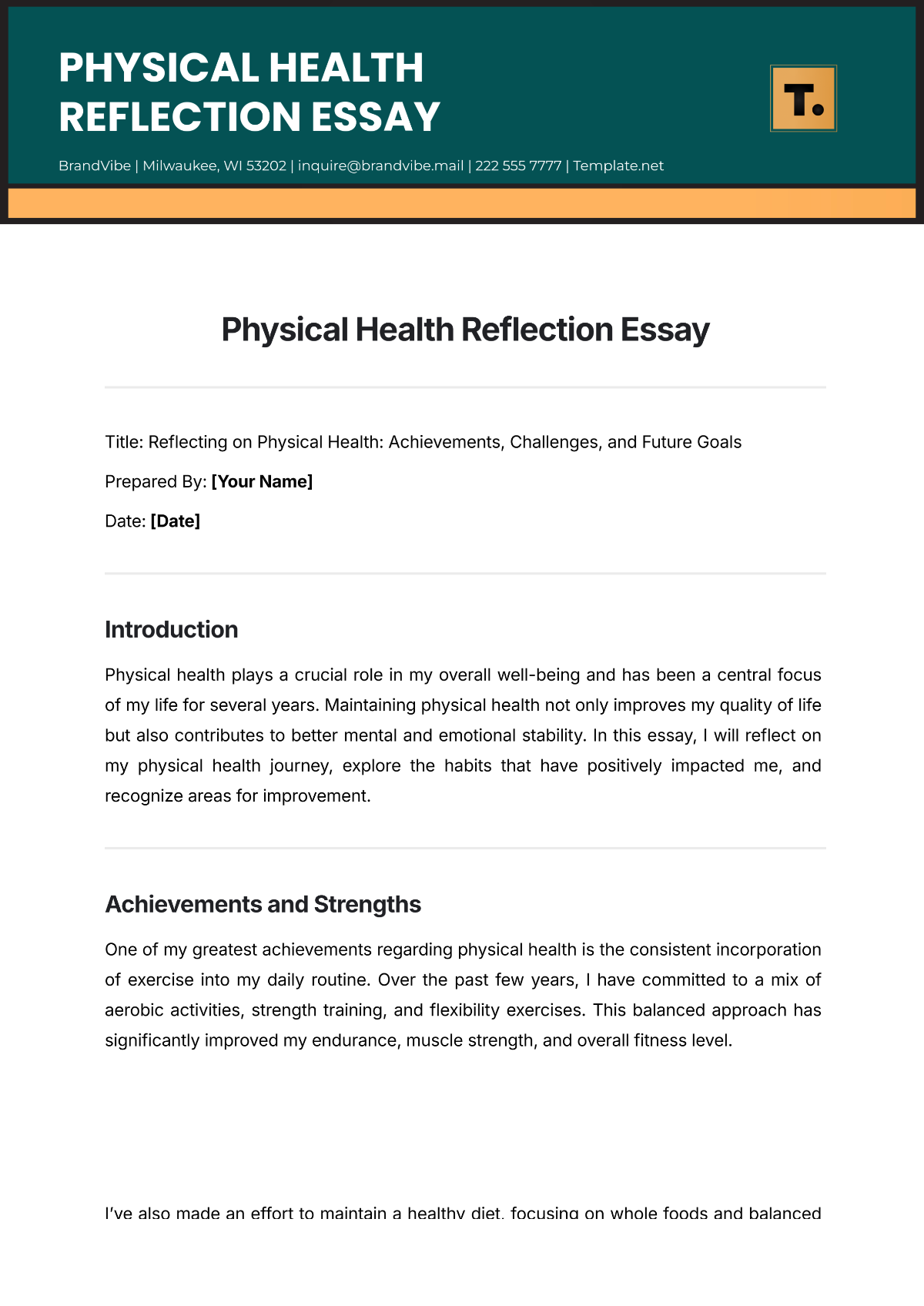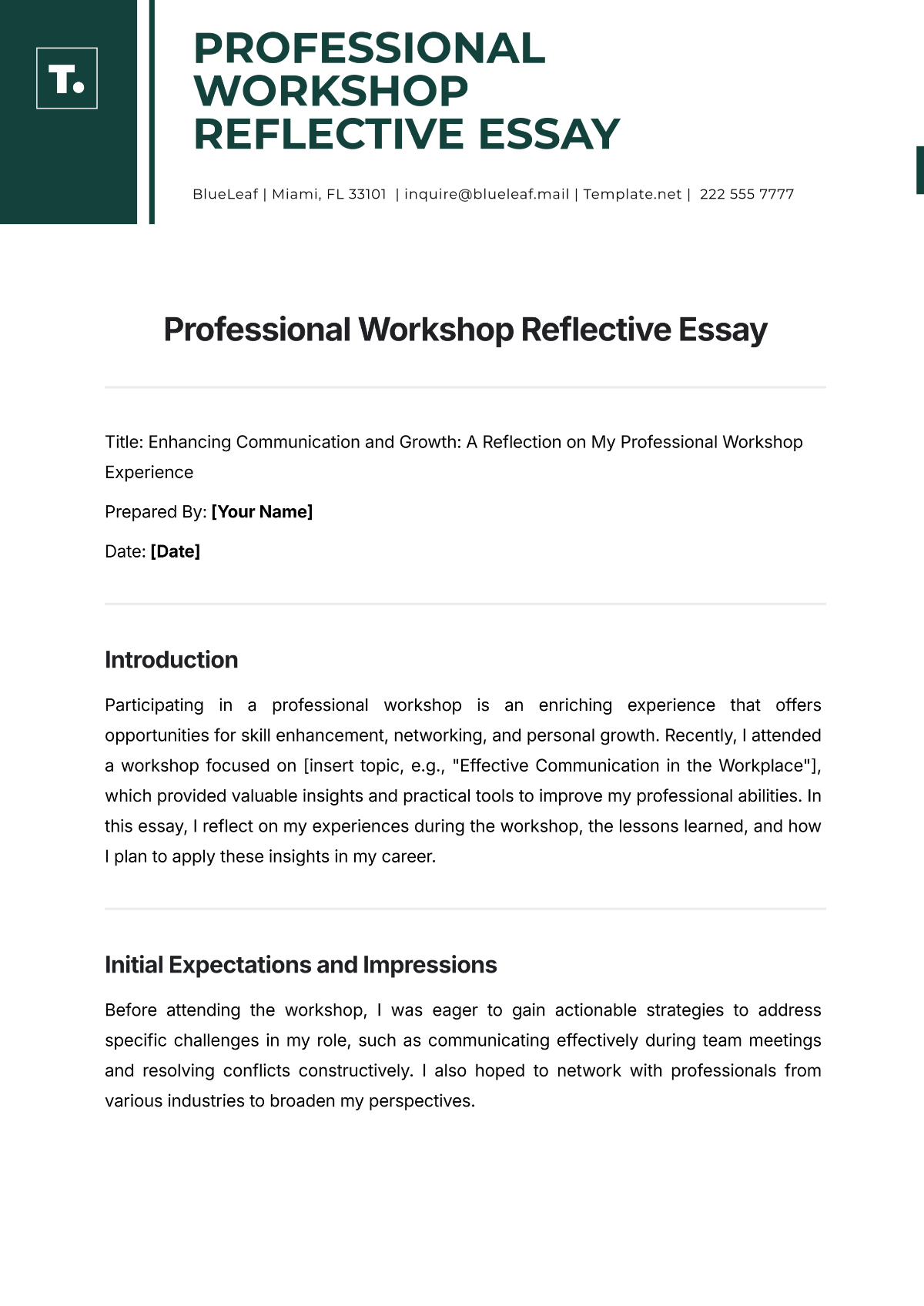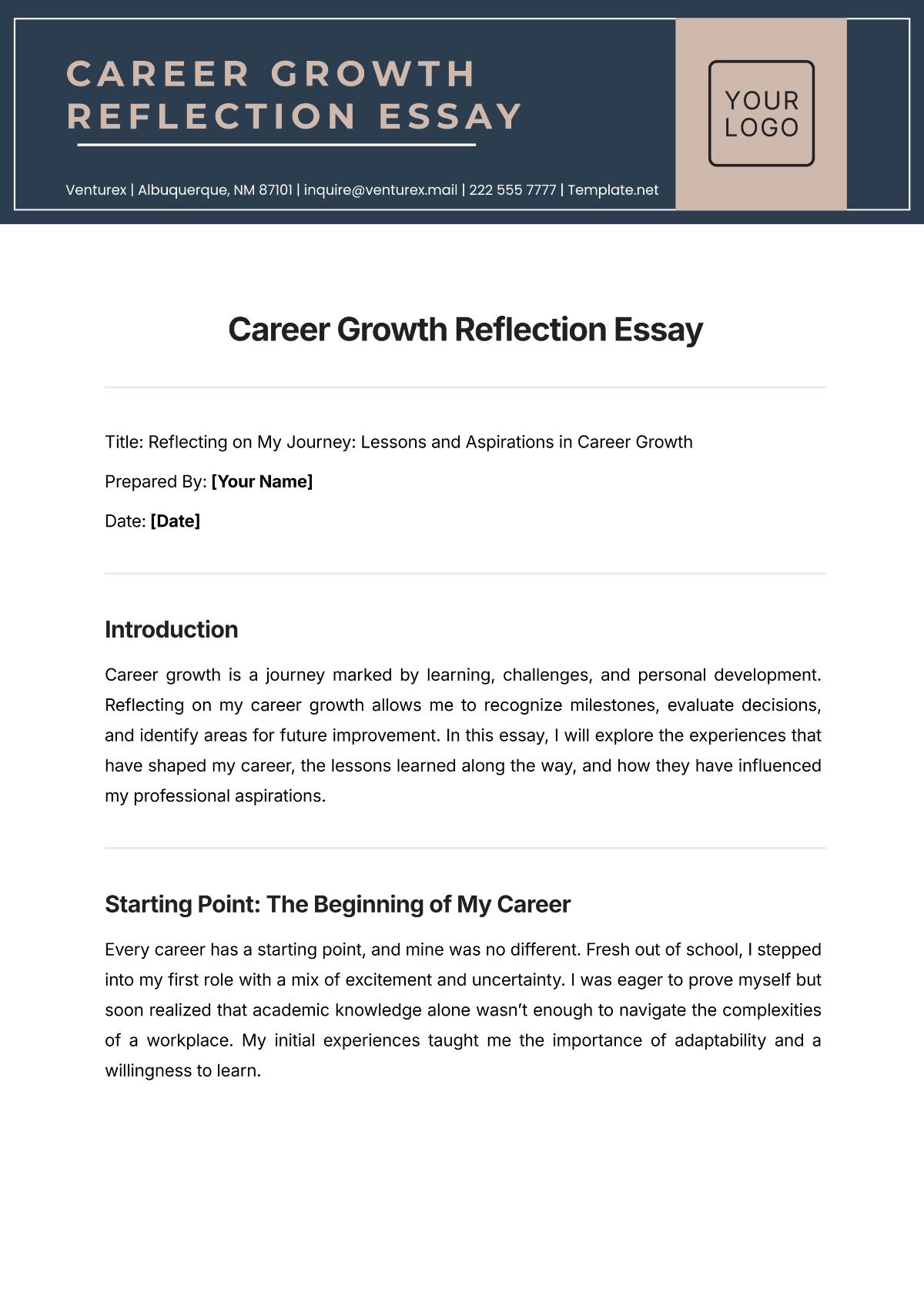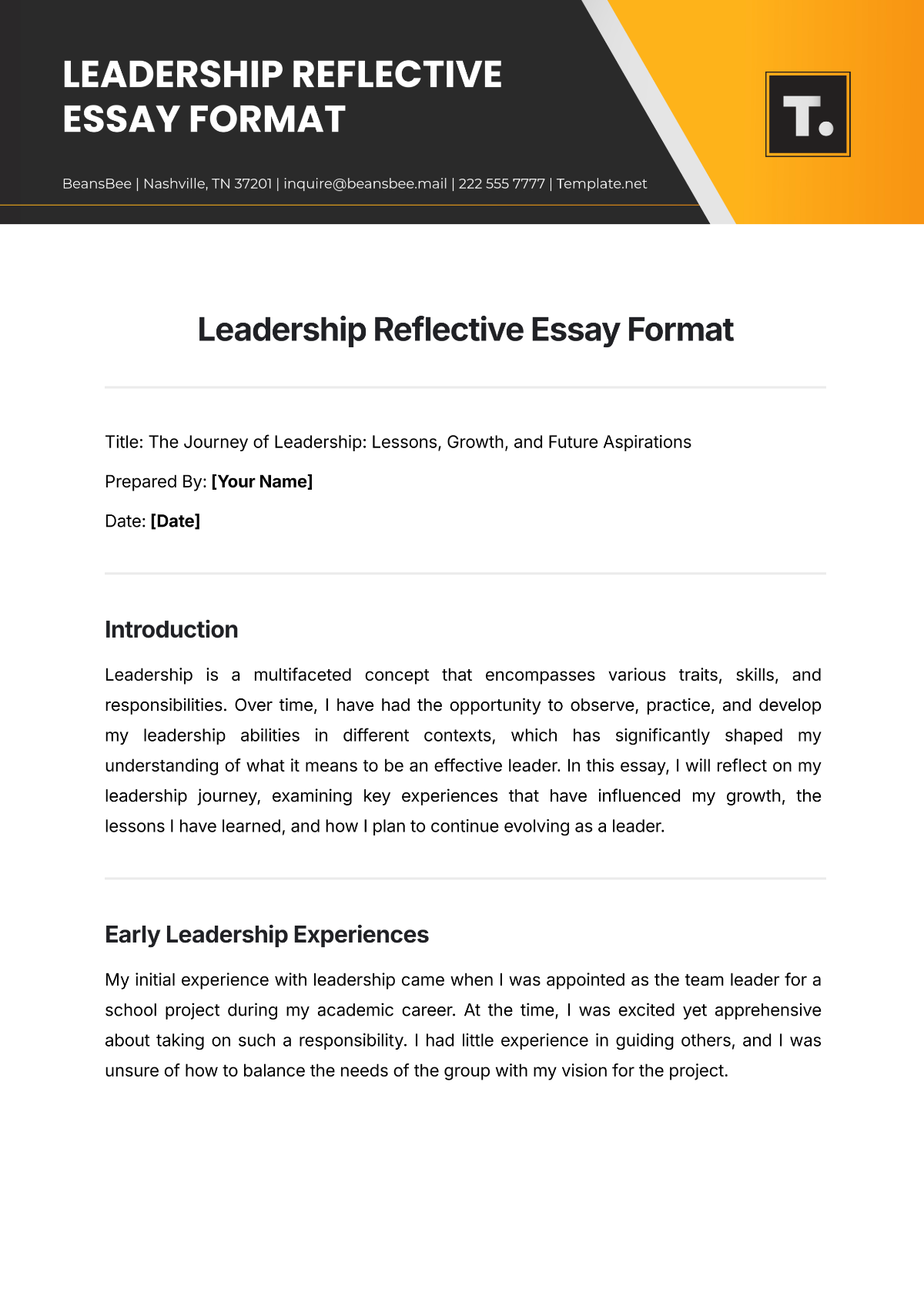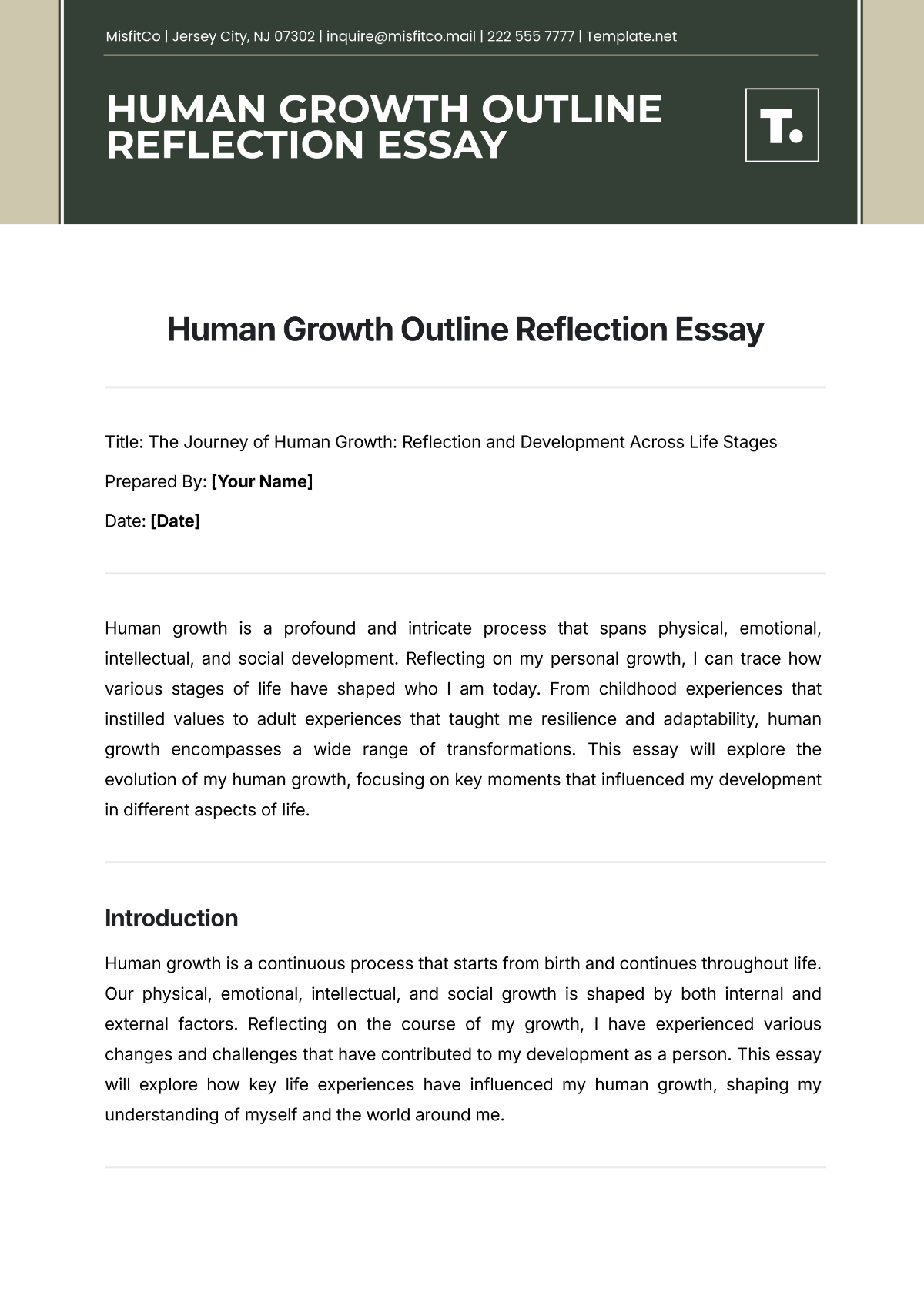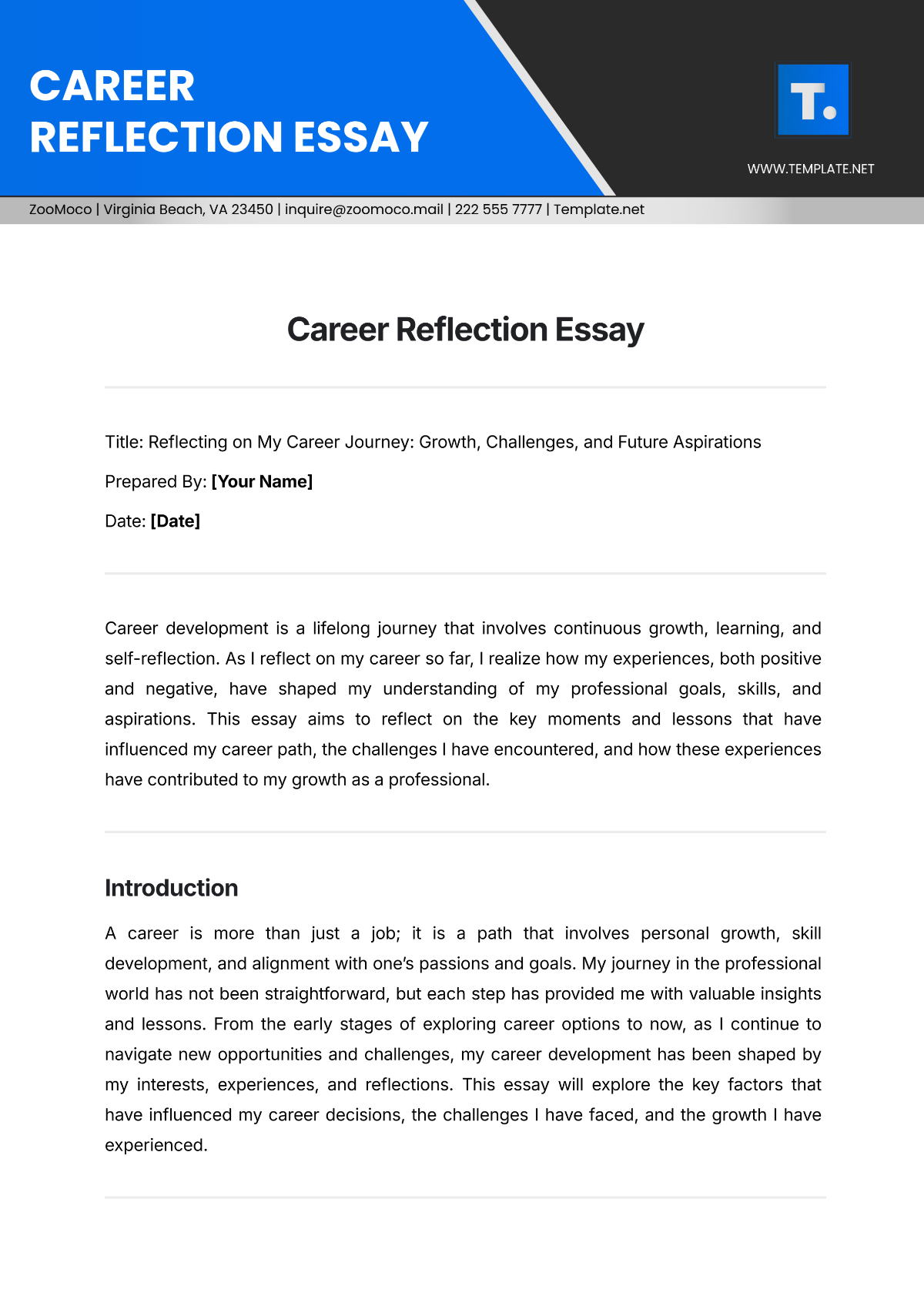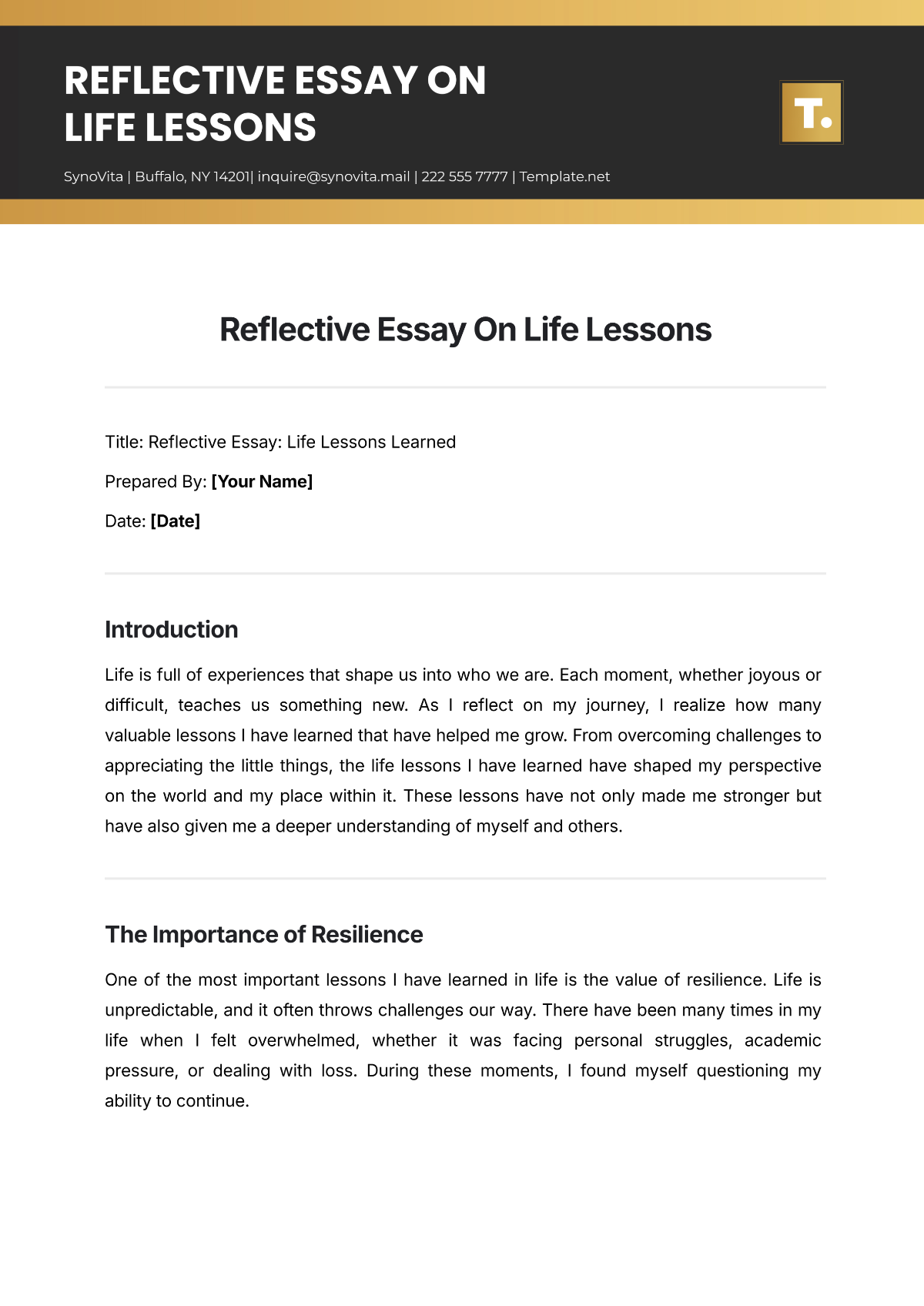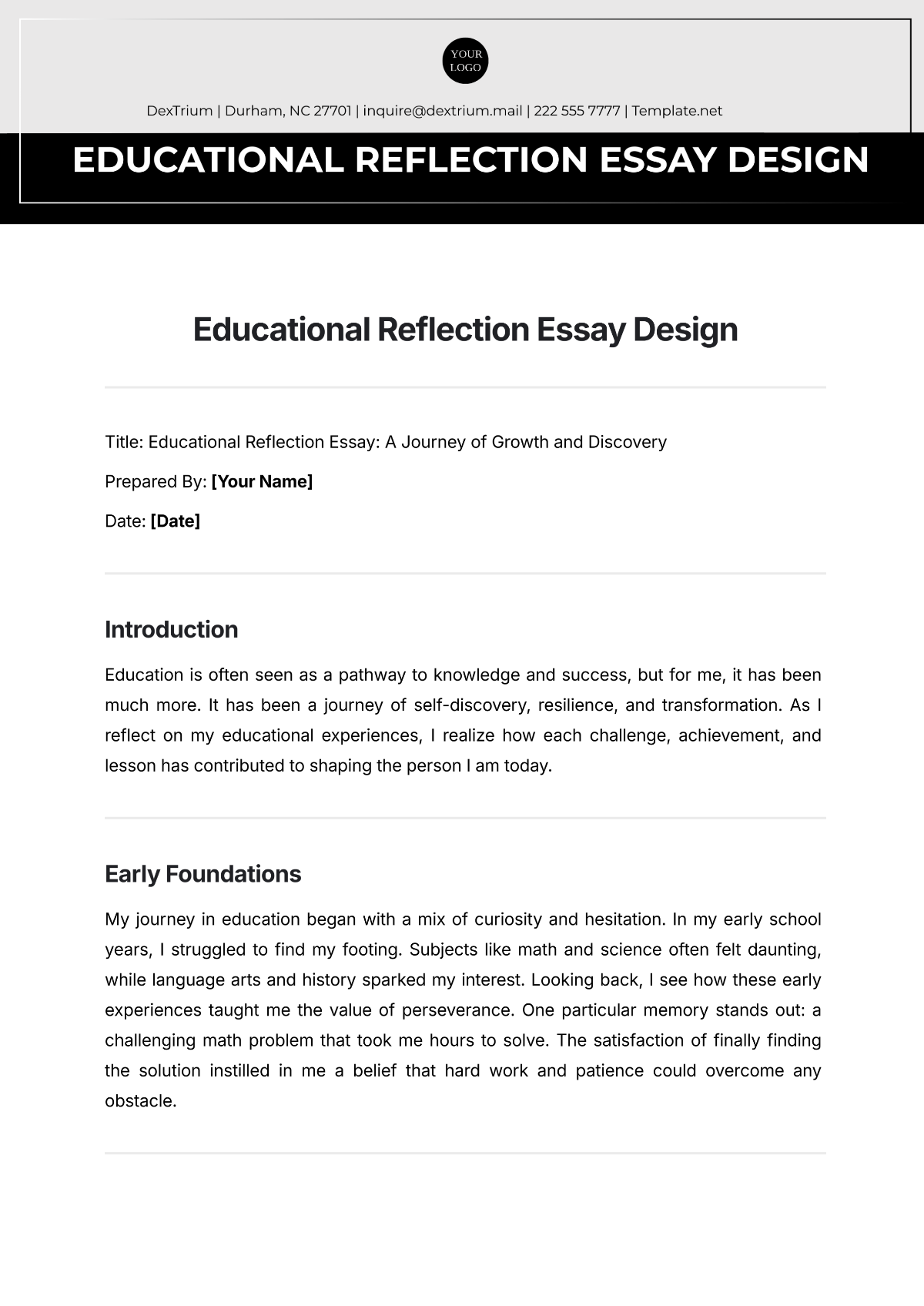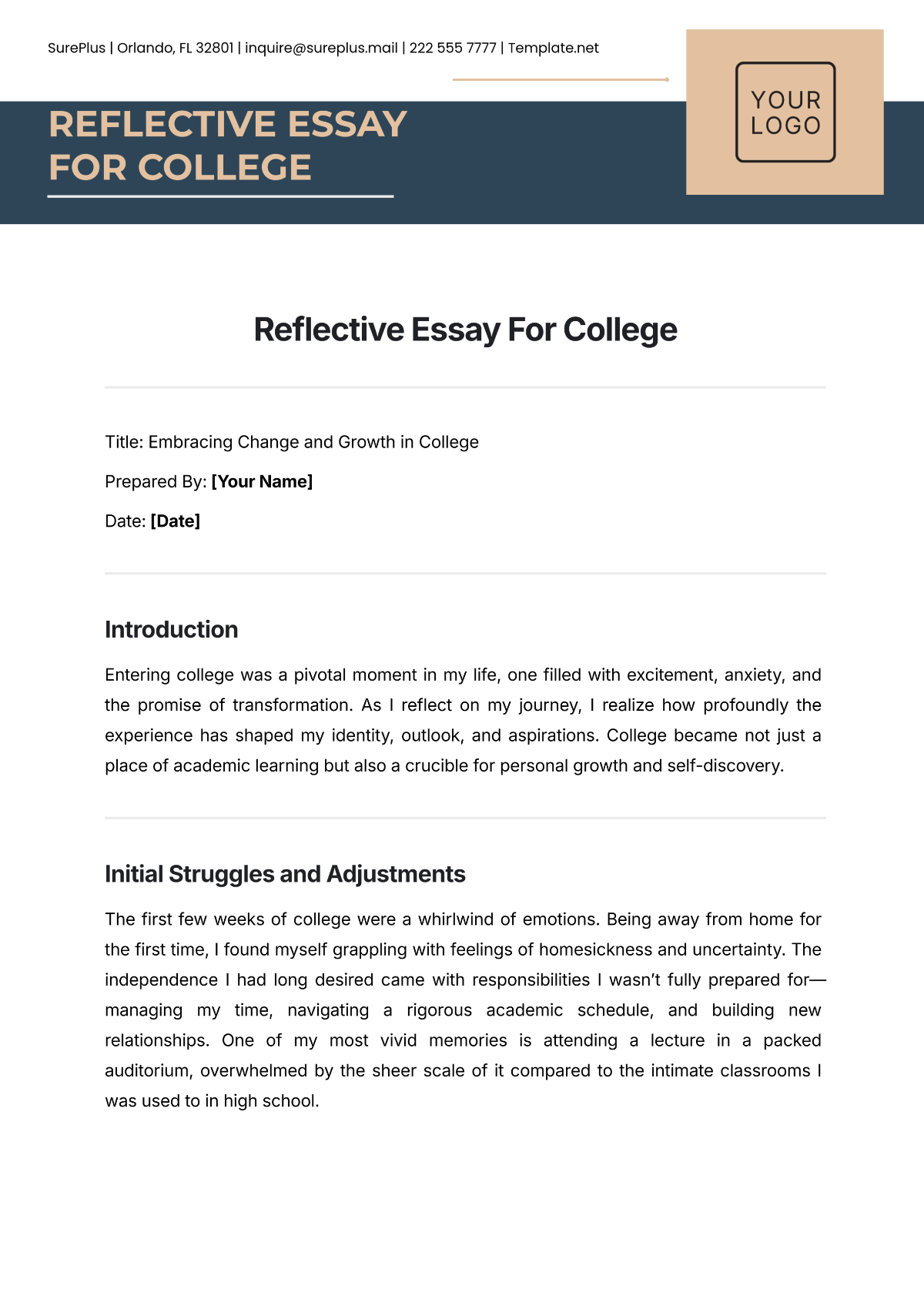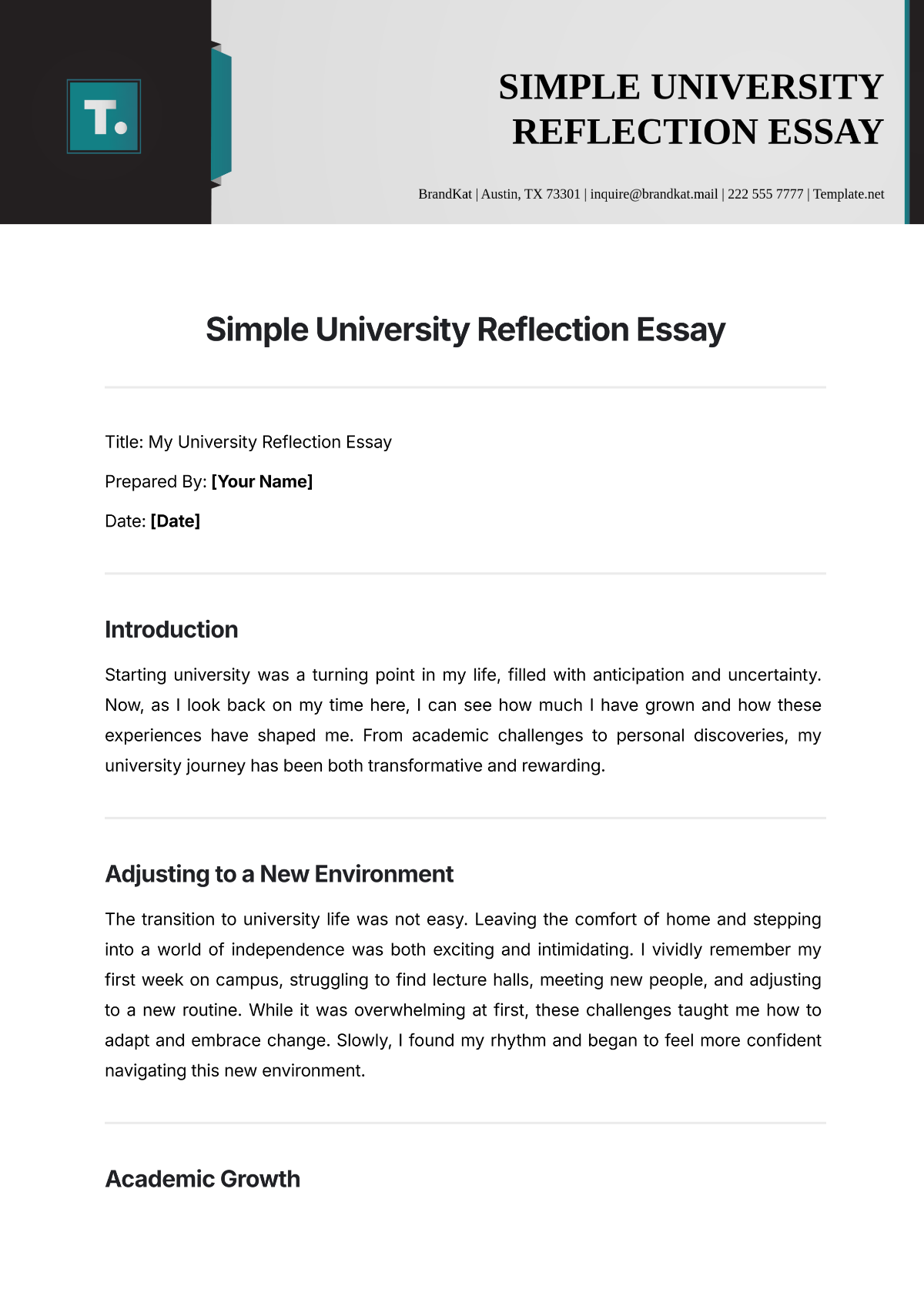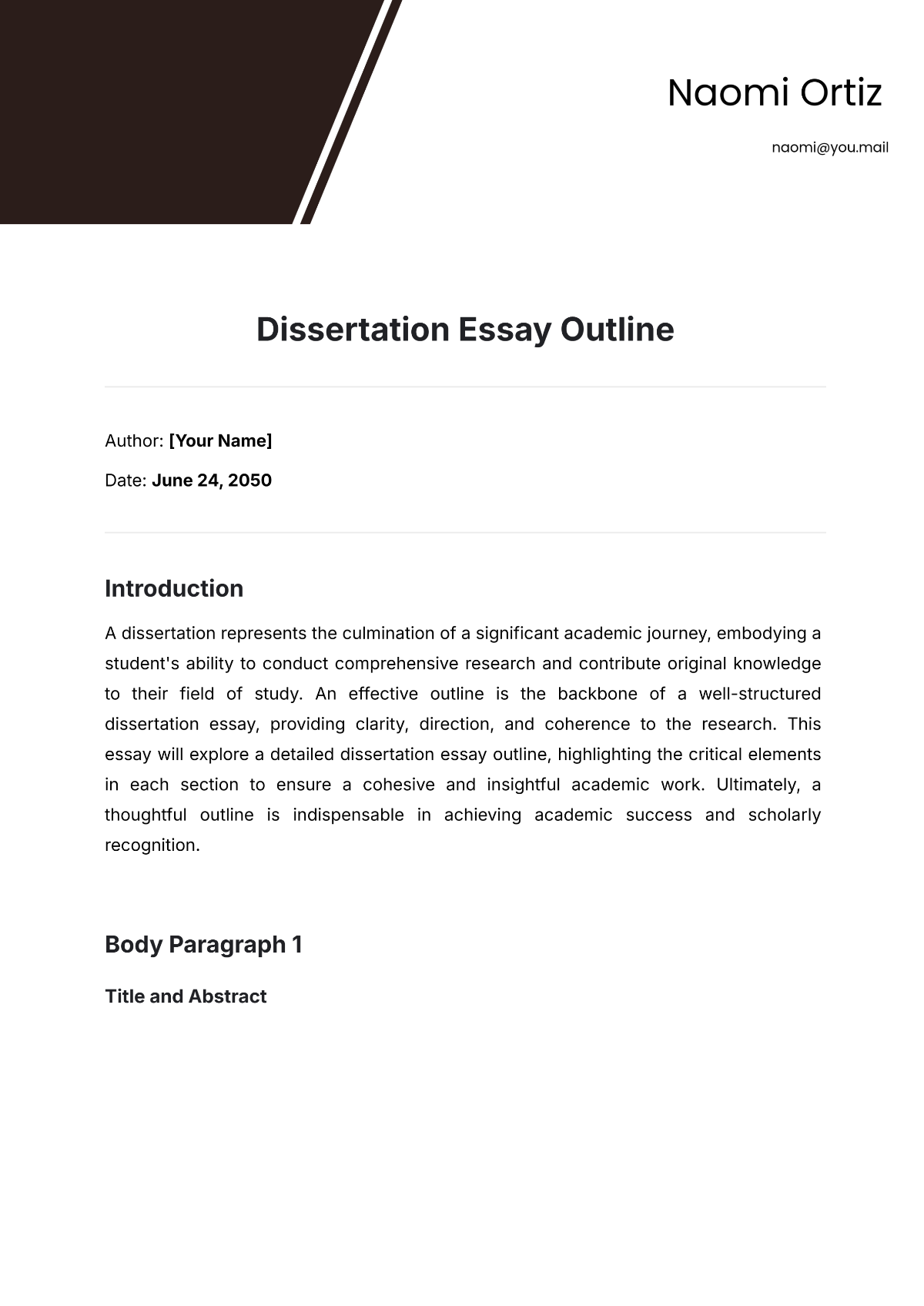Essay Planning Design
Author: [YOUR NAME]
Course Name: [COURSE NAME]
Instructor Name: [INSTRUCTOR NAME]
Date: [DATE]
I. INTRODUCTION
Background Information:
[BRIEF BACKGROUND INFORMATION ON THE TOPIC]
(Provide a brief context to help the reader understand the significance of the topic and why it is being discussed.)Thesis Statement:
[CLEAR AND CONCISE THESIS STATEMENT, OUTLINING THE MAIN ARGUMENT OR PURPOSE OF THE ESSAY]
(State the central point or argument of the essay clearly, explaining what you intend to prove or discuss.)
II. BODY PARAGRAPH ONE
Topic Sentence:
[MAIN IDEA OF THE FIRST BODY PARAGRAPH]
(Introduce the first point that supports your thesis. This should be a clear statement of the paragraph's purpose.)Evidence/Examples:
[RELEVANT EVIDENCE OR EXAMPLES THAT SUPPORT THE TOPIC SENTENCE]
(Provide facts, statistics, quotes, or studies that validate the point being made.)Explanation/Analysis:
[DETAILED EXPLANATION OF HOW THE EVIDENCE SUPPORTS THE CLAIM]
(Analyze the evidence and show how it directly ties to the argument you're making in the essay.)Concluding Sentence:
[CONCLUDING REMARKS THAT LINK THIS PARAGRAPH TO THE NEXT ONE]
(Summarize the main point of the paragraph and transition to the next argument.)
III. BODY PARAGRAPH TWO
Topic Sentence:
[MAIN IDEA OF THE SECOND BODY PARAGRAPH]Evidence/Examples:
[RELEVANT EVIDENCE OR EXAMPLES THAT SUPPORT THE TOPIC SENTENCE]Explanation/Analysis:
[DETAILED EXPLANATION OF HOW THE EVIDENCE SUPPORTS THE CLAIM]Concluding Sentence:
[CONCLUDING REMARKS THAT LINK THIS PARAGRAPH TO THE NEXT ONE]
IV. BODY PARAGRAPH THREE (Optional)
Topic Sentence:
[MAIN IDEA OF THE THIRD BODY PARAGRAPH]Evidence/Examples:
[RELEVANT EVIDENCE OR EXAMPLES THAT SUPPORT THE TOPIC SENTENCE]Explanation/Analysis:
[DETAILED EXPLANATION OF HOW THE EVIDENCE SUPPORTS THE CLAIM]Concluding Sentence:
[CONCLUDING REMARKS THAT LINK THIS PARAGRAPH TO THE NEXT ONE]
V. CONCLUSION
Restatement of Thesis:
[RESTATE THE THESIS IN A SLIGHTLY DIFFERENT WAY]
(Briefly revisit the main point of your essay, reminding the reader of the central argument.)Summary of Main Points:
[SUMMARIZE THE KEY POINTS MADE IN THE BODY PARAGRAPHS]
(Provide a concise recap of the key arguments you’ve discussed in the body of your essay.)Final Thoughts:
[FINAL INSIGHT OR CALL TO ACTION]
(Leave the reader with a final thought or a call to action. This could be a question, a recommendation, or a reflection on the broader implications of the topic.)
VI. REFERENCES
Reference 1:
[AUTHOR LAST NAME, FIRST INITIAL. (YEAR). TITLE OF THE SOURCE IN ITALICS. PUBLISHER.]Reference 2:
[AUTHOR LAST NAME, FIRST INITIAL. (YEAR). TITLE OF THE SOURCE IN ITALICS. PUBLISHER.]Reference 3:
[AUTHOR LAST NAME, FIRST INITIAL. (YEAR). TITLE OF THE SOURCE IN ITALICS. PUBLISHER.]
(Include all sources cited within the essay using proper citation style. You can adjust formatting to match APA or other required styles.)

